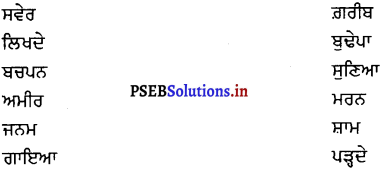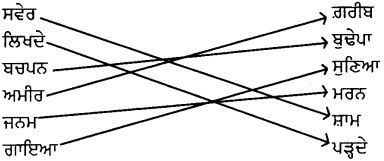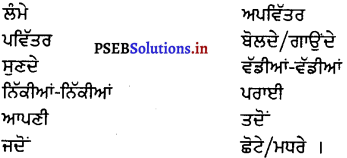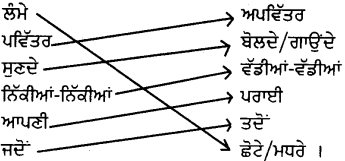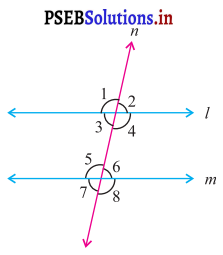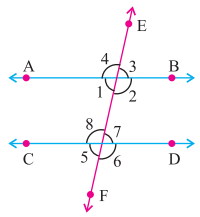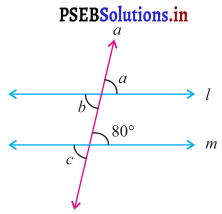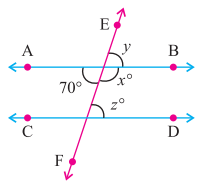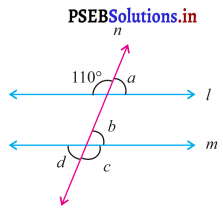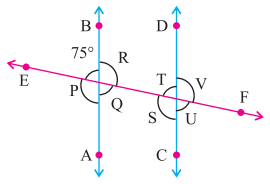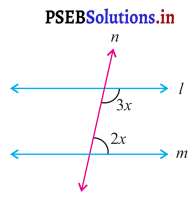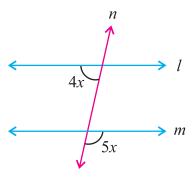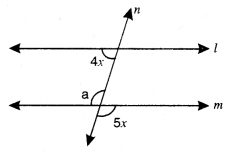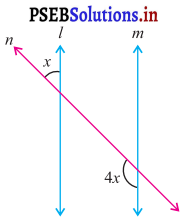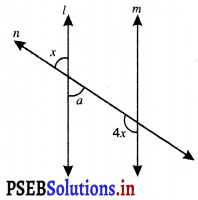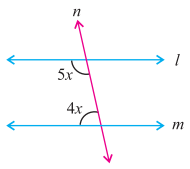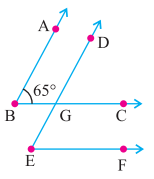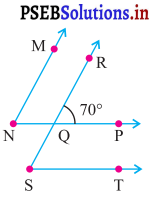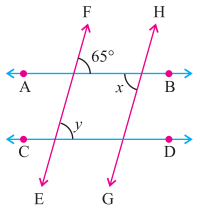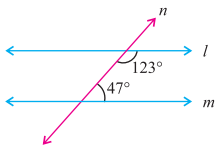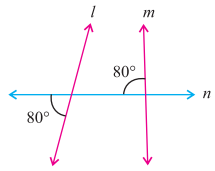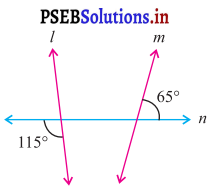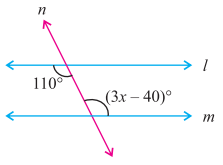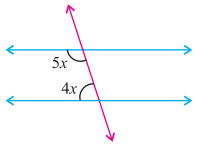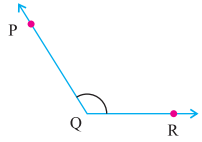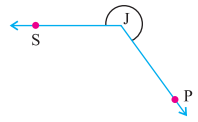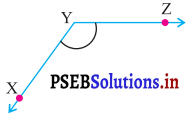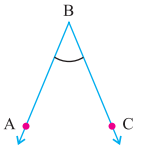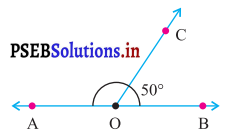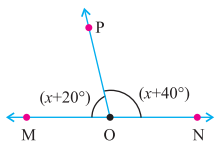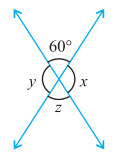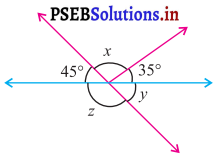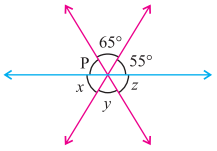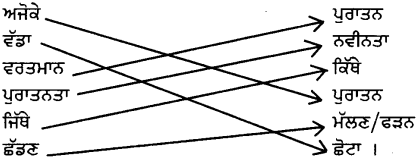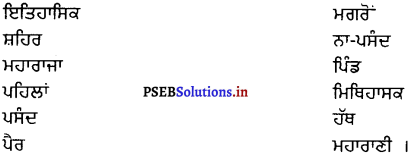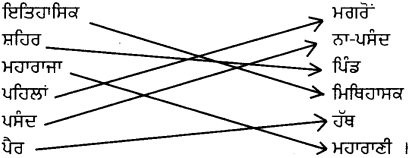Punjab State Board PSEB 8th Class Punjabi Book Solutions Chapter 8 ਬਾਬਾ ਫ਼ਰੀਦ Textbook Exercise Questions and Answers.
PSEB Solutions for Class 8 Punjabi Chapter 8 ਬਾਬਾ ਫ਼ਰੀਦ (1st Language)
Punjabi Guide for Class 8 PSEB ਬਾਬਾ ਫ਼ਰੀਦ Textbook Questions and Answers
ਬਾਬਾ ਫ਼ਰੀਦ ਪਾਠ-ਅਭਿਆਸ
1. ਦੱਸ :
(ਉ) ਬਾਬਾ ਫ਼ਰੀਦ ਜੀ ਦਾ ਜਨਮ ਕਦੋਂ ਅਤੇ ਕਿੱਥੇ ਹੋਇਆ? ਉਹਨਾਂ ਦੇ ਮਾਤਾ-ਪਿਤਾ ਦਾ ਨਾਂ ਕੀ ਸੀ ?
ਉੱਤਰ :
ਬਾਬਾ ਫ਼ਰੀਦ ਜੀ ਦਾ ਜਨਮ 1173 ਈ: ਵਿਚ ਮੁਲਤਾਨ ਦੇ ਇਕ ਨਿੱਕੇ ਜਿਹੇ ਪਿੰਡ ਕੋਠੀਵਾਲ ਵਿਚ ਹੋਇਆ। ਆਪ ਦੇ ਪਿਤਾ ਜੀ ਦਾ ਨਾਂ ਸ਼ੇਖ ਜਮਾਲੁਦੀਨ ਤੇ ਮਾਤਾ ਦਾ ਨਾਂ ਕਰਮ ਸੀ।
(ਅ) ਬਾਬਾ ਫ਼ਰੀਦ ਜੀ ਕਿਸ ਤਰ੍ਹਾਂ ਦਾ ਜੀਵਨ ਬਤੀਤ ਕਰਦੇ ਸਨ ?
ਉੱਤਰ :
ਬਾਬਾ ਫ਼ਰੀਦ ਸਰਲ, ਸਾਦਾ, ਤਪ – ਤਿਆਗ, ਸਬਰ – ਸੰਤੋਖ ਤੇ ਗ਼ਰੀਬੀ ਵਾਲਾ ਜੀਵਨ ਬਸਰ ਕਰਦੇ ਸਨ। ਕੱਚਾ ਕੋਠਾ, ਜੁਆਰ ਦੀ ਰੋਟੀ, ਉਬਲੇ ਛੋਲੇ ਤੇ ਸਧਾਰਨ ਕੰਬਲੀ ਉਨ੍ਹਾਂ ਦੀ ਕੁੱਲ ਦੌਲਤ ਸੀ।
(ਬ) ਬਾਬਾ ਫ਼ਰੀਦ ਜੀ ਦਾ ਕੀ ਉਪਦੇਸ਼ ਸੀ ? ਉਹਨਾਂ ਦੇ ਉਪਦੇਸ਼ ਦੀ ਪ੍ਰੋੜਤਾ ਕਰਦੀ ਘਟਨਾ ਆਪਣੇ ਸ਼ਬਦਾਂ ਵਿੱਚ ਲਿਖੋ।
ਉੱਤਰ :
ਬਾਬਾ ਫ਼ਰੀਦ ਜੀ ਦਾ ਉਪਦੇਸ਼ ਸੀ ਕਿ ਸਭ ਨਾਲ ਪੇਮ – ਪਿਆਰ ਕਰੋ ਤੇ ਸਭ ਦਾ ਭਲਾ ਮਨਾਓ ਜੇਕਰ ਕੋਈ ਬੁਰਾਈ ਕਰੇ, ਤਾਂ ਵੀ ਉਸ ਨਾਲ ਭਲਾਈ ਦਾ ਵਰਤਾਓ ਹੀ ਕਰੋ। ਇਕ ਵਾਰੀ ਉਨ੍ਹਾਂ ਕੋਲ ਕੋਈ ਸੱਜਣ ਕੈਂਚੀ ਲੈ ਕੇ ਆਇਆ ਤੇ ਉਸ ਨੇ ਉਸ ਦੀ ਸਿਫ਼ਤ ਕਰਦਿਆਂ ਕਿਹਾ, ਇਹ ਕੈਂਚੀ ਬੜੇ ਮਜ਼ਬੂਤ ਲੋਹੇ ਦੀ ਬਣੀ ਹੋਈ ਹੈ ; ਇਹ ਬਹੁਤ ਤਿੱਖੀ ਹੈ ਅਤੇ ਇਹ ਬਹੁਤ ਸੋਹਣਾ ਕੱਟਦੀ ਹੈ। ਫ਼ਰੀਦ ਜੀ ਨੇ ਉਸ ਦੇ ਹੱਥੋਂ ਕੈਂਚੀ ਲੈ ਕੇ ਉਸ ਨੂੰ ਚਾਰੇ ਪਾਸੇ ਘੁਮਾ ਕੇ ਦੇਖਿਆ ਤੇ ਕਿਹਾ, “ਭਾਈ ਪ੍ਰੇਮੀਆ ! ਤੂੰ ਇਹ ਲੈ ਜਾ, ਇਹ ਤਾਂ ਕੱਟਣ ਵਾਲੀ ਹੈ ; ਚੀਰ – ਫਾੜ ਕਰਨ ਵਾਲੀ ਹੈ ਤੇ ਸਾਡਾ ਕੰਮ ਕੱਟਣਾ – ਤੋੜਨਾ ਨਹੀਂ, ਸਗੋਂ ਜੋੜਨਾ ਹੈ। ਤੂੰ ਮੈਨੂੰ ਇਕ ਨਿੱਕੀ ਜਿਹੀ ਸੂਈ ਲਿਆ ਕੇ ਦੇਹ, ਤਾਂ ਕਿ ਮੈਂ ਪਾਟਿਆਂ ਨੂੰ ਜੋੜ ਸਕਾਂ ; ਅੱਡੋ – ਅੱਡ ਨਿਖੜੇ ਦਿਲਾਂ ਨੂੰ ਪ੍ਰੀਤ – ਪਿਆਰ ਦੇ ਧਾਗੇ ਵਿਚ ਪਰੋ ਸਕਾਂ।” ਇਸੇ ਕਰਕੇ ਹੀ ਫ਼ਰੀਦ ਜੀ ਮਨੁੱਖ ਨੂੰ ਸੰਦੇਸ਼ ਦਿੰਦੇ ਸਨ ਕਿ ਸਭਨਾਂ ਦੇ ਅੰਦਰ ਰੱਬ ਵਸਦਾ ਹੈ। ਸਾਰੇ ਇਨਸਾਨ ਮਾਣਕ – ਮੋਤੀ ਹਨ ਤੇ ਸਭ ਦਾ ਬਰਾਬਰ ਸਤਿਕਾਰ ਕਰਨਾ ਹੀ ਸਾਡਾ ਫ਼ਰਜ਼ ਹੈ। ਕਿਸੇ ਨੂੰ ਮੰਦਾ – ਬੋਲ ਨਹੀਂ ਬੋਲਣਾ ਚਾਹੀਦਾ।
(ਸ) ਫ਼ਰੀਦਾ ਕੰਨਿ ਮੁਸਲਾ ਸੂਫੁ ਗਲਿ ਦਿਲ ਕਾਤੀ ਗੁੜ ਵਾਤਿ
ਬਾਹਰ ਦਿਸੈ ਚਾਨਣਾ ਦਿਲ ਅੰਧਿਆਰੀ ਰਾਤਿ।
ਉਪਰੋਕਤ ਸਲੋਕ ਦਾ ਭਾਵ ਸਪਸ਼ਟ ਕਰੋ।
ਉੱਤਰ :
ਫ਼ਕੀਰ ਦਾ ਜੀਵਨ ਪਾਖੰਡ ਭਰਿਆ ਨਹੀਂ ਹੋਣਾ ਚਾਹੀਦਾ, ਸਗੋਂ ਅੰਦਰੋਂ-ਬਾਹਰੋਂ ਨੇਕ ਤੇ ਸ਼ੁੱਧ ਹੋਣਾ ਚਾਹੀਦਾ ਹੈ ।
(ਹ) ਬਾਬਾ ਫ਼ਰੀਦ ਜੀ ਮੁਲਾਕਾਤ ਅਤੇ ਕਰਾਮਾਤ ਵਿੱਚੋਂ ਕਿਹੜੀ ਗੱਲ ਨੂੰ ਵੱਡਾ ਕਹਿੰਦੇ ਸਨ ? ਇਹ ਗੱਲ ਉਹਨਾਂ ਨੇ ਕਿਵੇਂ ਸੱਚੀ ਸਿੱਧ ਕਰ ਕੇ ਦਿਖਾਈ ?
ਉੱਤਰ :
ਬਾਬਾ ਫ਼ਰੀਦ ਜੀ ਮੁਲਾਕਾਤ ਅਤੇ ਕਰਾਮਾਤ ਵਿਚੋਂ ਮੁਲਾਕਾਤ ਨੂੰ ਵੱਡੀ ਕਹਿੰਦੇ ਸਨ। ਇਕ ਵਾਰੀ ਆਪ ਸ਼ੇਖ਼ ਬਹਾਉੱਦੀਨ ਨਾਲ ਸੈਰ ਕਰਦੇ – ਕਰਦੇ ਦੂਰ ਨਿਕਲ ਗਏ ਤੇ ਰਾਹ ਵਿਚ ਉਨ੍ਹਾਂ ਵਿਚਕਾਰ ਚਰਚਾ ਛਿੜ ਪਈ ਕਿ ‘ਕਰਾਮਾਤ’ ਵੱਡੀ ਹੈ ਕਿ ਮੁਲਾਕਾਤ 1 ਬਾਬਾ ਫ਼ਰੀਦ ਜੀ ਇਨਸਾਨੀ ਮੁਲਾਕਾਤ ਨੂੰ ਵੱਡੀ ਕਹਿੰਦੇ ਸਨ, ਪਰ ਬਹਾਉੱਦੀਨ ਕਰਾਮਾਤ ਨੂੰ ਵੱਡੀ ਕਹਿ ਰਹੇ ਸਨ। ਜਦੋਂ ਦੋਵੇਂ ਫ਼ਕੀਰ ਚਲਦੇ – ਚਲਦੇ ਨਗਰ ਦੇ ਕੋਲ ਪਹੁੰਚੇ, ਤਾਂ ਸਖ਼ਤ ਮੀਂਹ ਅਤੇ ਹਨੇਰੀ ਆ ਗਏ ਤੇ ਤੂਫ਼ਾਨ ਭੁੱਲਣ ਲੱਗਾ ਬਾਬਾ ਫ਼ਰੀਦ ਜੀ ਨੇ ਸ਼ੇਖ਼ ਬਹਾਉੱਦੀਨ ਨੂੰ ਕਿਹਾ ਕਿ ਉਹ ਕਰਾਮਾਤ ਦਿਖਾਉਣ, ਤਾਂ ਜੋ ਇਸ ਆਫ਼ਤ ਤੋਂ ਬਚਾ ਹੋ ਸਕੇ। ਸ਼ੇਖ਼ ਸਾਹਿਬ ਨੇ ਉੱਤਰ ਦਿੱਤਾ ਕਿ ਇੰਨੀ ਛੇਤੀ ਕਰਾਮਾਤ ਨਹੀਂ ਹੋ ਸਕਦੀ। ਇਹ ਸੁਣ ਕੇ ਫ਼ਰੀਦ ਜੀ ਨੇ ਕਿਹਾ ਕਿ ਉਸ ਪਿੰਡ ਵਿਚ ਇਕ ਗ਼ਰੀਬੜਾ ਜਿਹਾ ਬੰਦਾ ਉਨ੍ਹਾਂ ਦਾ ਜਾਣੂ – ਪਛਾਣੂ ਹੈ, ਉਹ ਉਸ ਕੋਲ ਚਲਦੇ ਹਨ। ਦੋਵੇਂ ਉਸ ਦੇ ਘਰ ਚਲੇ ਗਏ। ਉਸ ਨੇ ਆਦਰ ਨਾਲ ਦੋਹਾਂ ਫ਼ਕੀਰਾਂ ਨੂੰ ਸਫ਼ ਉੱਤੇ ਬਿਠਾਇਆ, ਅੱਗ ਬਾਲ ਕੇ ਪਾਣੀ ਗਰਮ ਕੀਤਾ ਤੇ ਉਨ੍ਹਾਂ ਦੇ ਹੱਥ – ਪੈਰ ਧੁਆ ਕੇ ਸਰਦਾ – ਬਣਦਾ ਭੋਜਨ ਖਵਾਇਆ। ਉਸ ਪ੍ਰੇਮੀ ਜੀਊੜੇ ਨੇ ਅਰਾਮ ਲਈ ਕੱਪੜੇ ਵਿਛਾ ਦਿੱਤੇ। ਦੋਵੇਂ ਫ਼ਕੀਰ ਉਸ ਦੀ ਪ੍ਰਾਹੁਣਚਾਰੀ ਤੋਂ ਬੜੇ ਖੁਸ਼ ਹੋਏ। ਸ਼ੇਖ਼ ਫ਼ਰੀਦ ਹੱਸ ਕੇ ਕਹਿਣ ਲੱਗੇ, ‘‘ਦੱਸੋ ਸ਼ੇਖ਼ ਜੀ ! ਕਿਸ ਚੀਜ਼ ਵਿਚ ਵਡਿਆਈ ਹੈ ?” ਸ਼ੇਖ਼ ਬਹਾਉੱਦੀਨ ਨੇ ਜਵਾਬ ਦਿੱਤਾ, ‘‘ਤੁਹਾਡੀ ਗੱਲ ਠੀਕ ਹੈ, ਕਰਾਮਾਤ ਨਾਲੋਂ ਮੁਲਾਕਾਤ ਸਚਮੁੱਚ ਵੱਡੀ ਹੈ।”
2. ਔਖੇ ਸ਼ਬਦਾਂ ਦੇ ਅਰਥ :
- ਸੂਫ਼ੀ : ਮੁਸਲਮਾਨ ਸਾਂਈਂ ਲੋਕਾਂ ਦਾ ਇੱਕ ਫਿਰਕਾ ਜੋ ਕਾਲੇ ਸੂਫ਼ ਦੇ ਕੱਪੜੇ ਪਹਿਨਦੇ ਹਨ।
- ਸ਼ਰੂ-ਸ਼ਰੀਅਤ – ਇਸਲਾਮ ਧਰਮ ਦੇ ਰੀਤੀ-ਰਿਵਾਜ
- ਰੁੱਕਾ : ਕਾਗਜ਼ ਦੇ ਟੁਕੜੇ ਤੇ ਲਿਖੀ ਚਿੱਠੀ ਸੁਨੇਹਾ
- ਸਬਕ : ਮੱਤ, ਸਿੱਖਿਆ, ਉਪਦੇਸ਼, ਪਾਠ
- ਅਰਸਾ : ਸਮਾਂ, ਚਿਰ, ਦੇਰ
- ਮਧੁਰਤਾ : ਮਿਠਾਸ
- ਮਨੋਹਰ : ਮਨ ਨੂੰ ਖਿੱਚ ਲੈਣ ਵਾਲਾ, ਸੋਹਣਾ, ਸੁੰਦਰ
- ਤਾਕੀਦ : ਪਕਿਆਈ, ਪ੍ਰੋੜ੍ਹਤਾ
- ਦੇਸ਼ : ਦੁਸ਼ਮਣੀ, ਈਰਖਾ, ਵੈਰ
- ਪ੍ਰਪੰਚ : ਅਡੰਬਰ, ਢੰਗ, ਛਲ, ਕਪਟ, ਧੋਖਾ
- ਮੁਸੱਲਾ : ਨਮਾਜ਼ ਪਦਾਆਸਣ
- ਦਰਵੇਸ਼ : ਮੁਸਲਮਾਨ ਫ਼ਕੀਰ, ਸੰਤ
- ਮੰਗਲ : ਮੱਧ ਏਸ਼ੀਆਅਤੇ ਉਸਦੇ ਪੂਰਬ ਵੱਲ ਵੱਸਣ ਵਾਲੀ ਇੱਕ ਜਾਤ
- ਜਾਬਰ : ਜ਼ਾਲਮ, ਜਬਰ ਕਰਨ ਵਾਲਾ, ਧੱਕੇਬਾਜ਼
- ਇਲਾਹੀ ਇਤਕਾਦ : ਰੱਬ ਵਿੱਚ ਵਿਸ਼ਵਾਸ
- ਇਮਦਾਦ : ਮਦਦ, ਸਹਾਇਤਾ
- ਸੂਫ਼ : ਕੱਪੜੇ ਦੀ ਇੱਕ ਕਿਸਮ
3. ਵਾਕਾਂ ਵਿੱਚ ਵਰਤੋ:
ਸੂਫੀ, ਸਬਰ-ਸੰਤੋਖ, ਨਿਵਾਸ, ਗੁਜ਼ਾਰਾ, ਵਿਹਾਰ, ਆਫ਼ਤ, ਤਾਕੀਦ, ਅਨੁਮਾਨ, ਜ਼ਾਹਰ, ਜਾਨਸ਼ੀਨ, ਸੰਦੇਸ਼, ਅਹਿਸਾਨ
ਉੱਤਰ :
- ਸੂਫ਼ੀ ਫ਼ਕੀਰਾਂ ਦਾ ਇਕ ਫ਼ਿਰਕਾ – ਸ਼ੇਖ਼ ਫ਼ਰੀਦ ਜੀ ਤਪ – ਤਿਆਗ ਵਾਲੇ ਸੂਫ਼ੀ ਫ਼ਕੀਰ ਸਨ।
- ਸਬਰ – ਸੰਤੋਖ ਸਿੰਜਮ ਵਿਚ ਸਹਿਣ ਵਾਲਾ) – ਸ਼ੇਖ਼ ਫ਼ਰੀਦ ਜੀ ਸਬਰ – ਸੰਤੋਖ ਵਾਲੇ ਸੂਫ਼ੀ ਫ਼ਕੀਰ ਸਨ।
- ਨਿਵਾਸ (ਵਾਸਾ) – ਸਾਡਾ ਨਿਵਾਸ ਅਸਥਾਨ ਦਿੱਲੀ ਵਿਚ ਹੈ।
- ਗੁਜ਼ਾਰਾ ਜੀਵਨ ਲੋੜਾਂ ਦੀ ਪੂਰਤੀ – ਮੇਰਾ ਇੰਨੀ ਥੋੜ੍ਹੀ ਤਨਖਾਹ ਨਾਲ ਗੁਜ਼ਾਰਾ ਨਹੀਂ ਚਲਦਾ
- ਵਿਹਾਰ ਵਰਤਾਓ, ਰਵਈਆ) – ਮੈਂ ਇਹੋ ਜਿਹੇ ਮੁਜਰਿਮ ਕਿਸਮ ਦੇ ਬੰਦੇ ਨਾਲ ਵਰਤੋਂ – ਵਿਹਾਰ ਨਹੀਂ ਰੱਖਦਾ।
- ਆਫ਼ਤ ਮੁਸੀਬਤ) – ਰਾਤ ਵਾਲਾ ਮੀਂਹ ਤਾਂ ਇਕ ਆਫ਼ਤ ਸੀ, ਜਿਸ ਨੇ ਸਾਰਾ ਪਿੰਡ ਰੋੜ੍ਹ ਦਿੱਤਾ।
- ਅਨੁਮਾਨ (ਅਦਾਜ਼ਾ) – ਮੌਸਮ ਵਿਭਾਗ ਦਾ ਅਨੁਮਾਨ ਹੈ ਕਿ ਅੱਜ ਮੀਂਹ ਪਵੇਗਾ।
- ਜਾਹਰ ਪ੍ਰਗਟ, ਸਪੱਸ਼ਟ) – ਉਸਦਾ ਝੂਠ ਸਭ ਦੇ ਸਾਹਮਣੇ ਜ਼ਾਹਰ ਹੋ ਗਿਆ।
- ਜਾਂ – ਨਸ਼ੀਨ ਵਾਰਸ) – ਸ਼ੇਖ਼ ਫ਼ਰੀਦ ਜੀ ਨੇ ਸ਼ੇਖ਼ ਨਿਜ਼ਾਮੁੱਦੀਨ ਨੂੰ ਆਪਣਾ ਜਾਂ – ਨਸ਼ੀਨ ਥਾਪਿਆ।
- ਸੰਦੇਸ਼ ਸੁਨੇਹਾ) – ਮੇਰਾ ਸੰਦੇਸ਼ ਮਿਲਣ ਤੇ ਉਹ ਝਟਪਟ ਮੈਨੂੰ ਮਿਲਣ ਲਈ ਆ ਪਹੁੰਚਾ
- ਅਹਿਸਾਨ ਕਿਸੇ ਦੀ ਲੋੜ ਸਮੇਂ ਕੀਤੀ ਮੱਦਦ – ਮੇਰੇ ਗੁਆਂਢੀ ਨੇ ਮੇਰੀ ਔਖੇ ਸਮੇਂ ਵਿਚ ਮੱਦਦ ਕੀਤੀ। ਮੈਂ ਉਸਦਾ ਅਹਿਸਾਨ ਕਦੀ ਨਹੀਂ ਭੁੱਲ ਸਕਦਾ।
ਵਿਆਕਰਨ :
ਪਿਛਲੇ ਪਾਠ ਵਿੱਚ ਤੁਸੀਂ ਪੁਰਖਵਾਚਕ ਪੜਨਾਂਵ ਬਾਰੇ ਪੜ੍ਹਿਆ ਹੈ।
2. ਨਿੱਜਵਾਚਕ ਪੜਨਾਂਵ : ਜਿਹੜਾ ਸ਼ਬਦ ਕਰਤਾ ਦੇ ਨਾਲ ਆ ਕੇ ਜਾਂ ਉਸ ਵਾਕ ਦੇ ਕਰਤਾ ਦੀ ਥਾਂ ਵਰਤਿਆ ਜਾਵੇ, ਉਸ ਨੂੰ ਨਿੱਜਵਾਚਕ ਪੜਨਾਂਵ ਕਿਹਾ ਜਾਂਦਾ ਹੈ, ਜਿਵੇਂ:
(ੳ) ਮੁਢਲੀ ਵਿੱਦਿਆ ਹਾਸਲ ਕਰ ਕੇ ਆਪ ਮੁਲਤਾਨ ਚਲੇ ਗਏ।
(ਅ) ਸਾਨੂੰ ਆਪਸ ਵਿੱਚ ਪਿਆਰ ਨਾਲ ਰਹਿਣਾ ਚਾਹੀਦਾ ਹੈ।
(ਏ) ਜਿਹੜੇ ਲੋਕ ਨਸ਼ੇ ਵਰਤਦੇ ਹਨ, ਉਹ ਆਪਣੇ-ਆਪ ਨੂੰ ਤਬਾਹ ਕਰ ਲੈਂਦੇ ਹਨ।
ਇਹਨਾਂਵਾਕਾਂ ਵਿੱਚ ਆਪ, ਆਪਸ, ਆਪਣੇ-ਆਪ, ਨਿੱਜਵਾਚਕ ਪੜਨਾਂਵ ਹਨ।
3. ਨਿਸ਼ਚੇਵਾਚਕ ਪੜਨਾਂਵ: ਜਿਹੜੇ ਪੜਨਾਂਵ ਕਿਸੇ ਦੂਰ ਜਾਂ ਨੇੜੇ ਦੀ ਦਿਸਦੀ ਚੀਜ਼ ਵੱਲ ਇਸ਼ਾਰਾ ਕਰ ਕੇ ਉਸ ਦੇ ਨਾਂ ਦੀ ਥਾਂ ਵਰਤੇ ਜਾਣ, ਉਹਨਾਂ ਨੂੰ ਨਿਸ਼ਚੇਵਾਚਕ ਪੜਨਾਂਵ ਕਹਿੰਦੇ ਹਨ, ਜਿਵੇਂ:
(ਉ) ਅਹੁ ਕੁਝ ਬਣ ਰਿਹਾ ਹੈ।
(ਅ) ਭਾਈ ਪ੍ਰੇਮੀਆ! ਤੂੰ ਇਹ ਲੈ ਜਾ, ਇਹ ਤਾਂ ਕੱਟਣ ਵਾਲੀ ਤੇ ਚੀਰ-ਫਾੜ ਕਰਨ ਵਾਲੀ ਚੀਜ਼ ਹੈ। ਇਹਨਾਂ ਵਾਕਾਂ ਵਿੱਚ ਅਹੁ’ ਅਤੇ ‘ਇਹ ਨਿਸ਼ਚੇਵਾਚਕ ਪੜਨਾਂਵ ਹਨ।
4. ਅਨਿਸ਼ਚੇਵਾਚਕ ਪੜਨਾਂਵ : ਉਸ ਪੜਨਾਂਵ ਨੂੰ ਅਨਿਸ਼ਚੇਵਾਚਕ ਪੜਨਾਂਵ ਕਹਿੰਦੇ ਹਨ, ਜਿਸ ਤੋਂ ਕਿਸੇ ਵਿਅਕਤੀ, ਜੀਵ,ਵਸਤੂ, ਸਥਾਨ ਆਦਿ ਦਾ ਸਪਸ਼ਟ ਜਾਂ ਨਿਸ਼ਚਿਤ ਗਿਆਨ ਨਾ ਹੋਵੇ, ਜਿਵੇਂ:
(ਉ) ਜੇ ਕੋਈ ਸ਼ਰਾ-ਸ਼ਰੀਅਤ ਨਿਭਾਉਂਦਾ ਅੰਦਰੋਂ ਸੱਚਾ-ਸੁੱਚਾ ਨਹੀਂ ਸੀ ਤਾਂ ਉਹ ਵੀ ਉਹਨਾਂ ਦੀ ਨਜ਼ਰ ਵਿੱਚ ਪ੍ਰਵਾਨ ਨਹੀਂ ਸੀ।
(ਅ) ਬਾਬਾ ਫ਼ਰੀਦ ਜੀ ਦੇ ਕਈ ਮੁਰੀਦ ਸਨ।
ਇਹਨਾਂ ਵਾਕਾਂ ਵਿੱਚ ‘ਕੋਈ ਅਤੇ‘ਕਈ ਅਨਿਸ਼ਚੇਵਾਚਕ ਪੜਨਾਂਵ ਹਨ।
5. ਸੰਬੰਧਵਾਚਕ ਪੜਨਾਂਵ: ਜਿਹੜਾ ਸ਼ਬਦ ਨਾਂਵ-ਸ਼ਬਦ ਦੀ ਥਾਂ ਵਰਤਿਆ ਜਾਵੇ ਤੇ ਯੋਜਕਾਂ ਵਾਂਗ ਦੋ ਵਾਕਾਂ ਨੂੰ ਆਪਸ ਵਿੱਚ ਜੋੜੇ, ਉਸ ਨੂੰ ਸੰਬੰਧਵਾਚਕ ਪੜਨਾਂਵ ਕਿਹਾ ਜਾਂਦਾ ਹੈ, ਜਿਵੇਂ :
(ੳ) ਉਹ ਲੋਕ ਜੋ ਆਪਸ ਵਿੱਚ ਪਿਆਰ ਕਰਦੇ ਹਨ, ਸੁਖੀ ਵੱਸਦੇ ਹਨ।
(ਅ) ਬਾਬਾ ਫ਼ਰੀਦ ਜੀ ਦੀ ਜਿਹੜੀ ਬਾਣੀ ਗੁਰੂ ਗ੍ਰੰਥ ਸਾਹਿਬ ਜੀ ਵਿੱਚ ਦਰਜ ਹੈ, ਅੱਜ ਵੀ ਸਾਰਥਕ ਹੈ।
ਇਹਨਾਂ ਵਾਕਾਂ ਵਿੱਚ ‘ਜੋ’ ਅਤੇ ‘ਜਿਹੜੀ ਸ਼ਬਦ ਸੰਬੰਧਵਾਚਕ ਪੜਨਾਂਵ ਹਨ।
6. ਪ੍ਰਸ਼ਨਵਾਚਕ ਪੜਨਾਂਵ: ਜਿਹੜਾ ਸ਼ਬਦ ਨਾਂਵਦੀ ਥਾਂ ਵਰਤਿਆ ਜਾਵੇ ਪਰ ਨਾਲ ਹੀ ਉਸ ਦੁਆਰਾ ਕੋਈ ਪੁੱਛ-ਗਿੱਛ ਕੀਤੀ ਜਾਵੇ, ਉਸ ਨੂੰ ਪ੍ਰਸ਼ਨਵਾਚਕ ਪੜਨਾਂਵ ਕਹਿੰਦੇ ਹਨ, ਜਿਵੇਂ:
(ੳ) ਉੱਚੀ ਕਰਨੀਵਾਲੇ ਫ਼ਕੀਰ ਕੌਣ ਸਨ ?
(ਅ) ਬਾਬਾ ਫ਼ਰੀਦ ਜੀ ਕੋਲ ਕੈਂਚੀ ਲੈ ਕੇ ਕੌਣ ਆਇਆ ਸੀ ?
(ੲ) ਬਾਬਾ ਫ਼ਰੀਦ ਜੀ ਨੇ ਕਿਹੜੀ ਭਾਸ਼ਾ ‘ਚ ਰਚਨਾ ਕੀਤੀ ?
ਇਹਨਾਂ ਵਾਕਾਂ ਵਿੱਚ ‘ਕੌਣ’, ਅਤੇ ‘ਕਿਹੜੀ ਸ਼ਬਦ ਪ੍ਰਸ਼ਨਵਾਚਕ ਪੜਨਾਂਵ ਹਨ।
ਹੇਠਾਂ ਦਿੱਤੇ ਵਾਕਾਂ ਵਿੱਚ ਲਕੀਰੇ ਸ਼ਬਦ ਕਿਹੜੀ ਕਿਸਮ ਦੇ ਪੜਨਾਂਵ ਹਨ:
- ਆਪ ਦਾ ਜਨਮ ਮੁਲਤਾਨ ਦੇ ਇੱਕ ਨਿੱਕੇ ਜਿਹੇ ਪਿੰਡ ਕੋਠੀਵਾਲ ਵਿੱਚ ਹੋਇਆ।
- ਉਹ ਜਿਸ ਨੂੰ ਰੂਹਾਨੀ ਤੌਰ ‘ਤੇ ਉੱਤਮ ਸਮਝਦੇ ਸਨ, ਉਸ ਨੂੰ ਉਹਨਾਂ ਗੱਦੀ ਦਿੱਤੀ।
- “ਭਾਈ ਪ੍ਰੇਮੀਆ!ਤੂੰ ਇਹ ਲੈ ਜਾ, ਇਹ ਤਾਂ ਕੱਟਣ ਵਾਲੀ ਤੇ, ਚੀਰ ਫਾੜ ਕਰਨ ਵਾਲੀ ਚੀਜ਼ ਹੈ ਤੇ ਸਾਡਾ ਕੰਮ ਕੱਟਣਾ – ਤੋੜਨਾ ਨਹੀਂ, ਸਗੋਂ ਜੋੜਨਾ ਹੈ।
- ਸ਼ੇਖ ਬਹਾਉਦੀਨ ਦਾਜਵਾਬ ਸੀ, “ਇਤਨੀ ਛੇਤੀ ਕਰਾਮਾਤ ਕਿਵੇਂ ਹੋ ਸਕਦੀ ਹੈ ? ਮੈਂ ਕੀ ਕਰ ਸਕਦਾ ਹਾਂ?’
- ਸਾਨੂੰ ਸਰਬੱਤ ਦਾ ਭਲਾ ਮੰਗਣਾ ਚਾਹੀਦਾ ਹੈ।
ਉੱਤਰ :
- ਆਪ – ਪੁਰਖਵਾਚਕ ਪੜਨਾਂਵ, ਤੀਜਾ ਪੁਰਖ
- ਉਹ – ਜਿਸ, ਉਸ, ਉਹਨਾਂ – ਪੁਰਖਵਾਚਕ ਪੜਨਾਂਵ, ਤੀਜਾ ਪੁਰਖ।
- ਤੂੰ – ਪੁਰਖਵਾਚਕ ਪੜਨਾਂਵ, ਦੂਜਾ ਪੁਰਖ। ਇਹਨਿਸਚੇਵਾਚਕ ਪੜਨਾਂਵ।
- ਮੈਂ – ਪੁਰਖਵਾਚਕ ਪੜਨਾਂਵ, ਉੱਤਮ ਪੁਰਖ। ਕੀ – ਪ੍ਰਸ਼ਨਵਾਚਕ ਪੜਨਾਂਵ।
- ਸਾਨੂੰ – ਪੁਰਖਵਾਚਕ ਪੜਨਾਂਵ, ਉੱਤਮ ਪੁਰਖ। ਸਰਬਤ – ਅਨਿਸਚੇਵਾਚਕ ਪੜਨਾਂਵ।
ਪੜ੍ਹੋ ਤੇ ਸਮਝੋ :
ਫ਼ਰੀਦ ਸਾਹਿਬ ਦੀ ਕਰਿ ਚਾਕਰੀ ਦਿਲ ਦੀ ਲਾਹਿ ਭਰਾਂਦਿ ਦਰਵੇਸਾਨੋ ਲੋੜੀਐ ਰੁੱਖਾਂ ਦੀ ਜੀਰਾਂਦਿ॥
PSEB 8th Class Punjabi Guide ਬਾਬਾ ਫ਼ਰੀਦ Important Questions and Answers
ਪ੍ਰਸ਼ਨ –
“ਬਾਬਾ ਫ਼ਰੀਦ ਪਾਠ ਦਾ ਸਾਰ ਲਿਖੋ।
ਉੱਤਰ :
ਸ਼ੇਖ਼ ਫ਼ਰੀਦ ਸ਼ਕਰਗੰਜ, ਪੰਜਾਬ ਦੇ ਮਸ਼ਹੂਰ ਸੂਫ਼ੀ ਫ਼ਕੀਰ ਹੋਏ ਹਨ, ਜਿਨ੍ਹਾਂ ਦਾ ਜਨਮ ਮੁਲਤਾਨ ਦੇ ਇਕ ਪਿੰਡ ਕੋਠੀਵਾਲ ਵਿਚ ਪਿਤਾ ਸ਼ੇਖ ਜਮਾਲਦੀਨ ਦੇ ਘਰ ਮਾਤਾ ਕਰਮ ਦੀ ਕੁੱਖੋਂ 1173 ਈ: ਵਿਚ ਹੋਇਆ ਮੁੱਢਲੀ ਵਿੱਦਿਆ ਪਿੱਛੋਂ ਆਪ ਪੰਜ – ਸੱਤ ਸਾਲ ਮਲਤਾਨ ਵਿਚ ਪੜ੍ਹਦੇ ਰਹੇ। ਇੱਥੋਂ ਆਪ ਕਈ ਵਾਰ ਦਿੱਲੀ ਗਏ ਤੇ ਹਾਂਸੀ – ਹਿਸਾਰ ਵਿਚ ਤਪੱਸਿਆ ਕਰਦੇ ਰਹੇ। ਅੰਤ ਉਹ ਸਤਲੁਜ ਦੇ ਕੰਢੇ ਪਾਕਪਟਨ ਵਿਚ ਆ ਟਿਕੇ ਤੋਂ ਉਨ੍ਹਾਂ ਦੀ ਪਵਿੱਤਰ ਰੁਹਾਨੀ ਜ਼ਿੰਦਗੀ ਦੇਖ ਕੇ ਆਪ ਦੇ ਮੁਰਸ਼ਦ ਬਖ਼ਤਿਆਰ ਕਾਕੀ ਨੇ ਆਪਣੀ ਗੱਦੀ ਆਪ ਨੂੰ ਸੌਂਪ ਦਿੱਤੀ।
ਸ਼ੇਖ਼ ਫ਼ਰੀਦ ਉੱਚੀ ਕਰਨੀ ਵਾਲੇ ਫ਼ਕੀਰ ਸਨ ਤੇ ਆਪ ਦਾ ਜੀਵਨ ਬੜਾ ਹੀ ਸਰਲ, ਸਾਦਾ, ਸਬਰ – ਸੰਤੋਖ ਤੇ ਗ਼ਰੀਬੀ ਵਾਲਾ ਸੀ ਕੱਚਾ ਕੋਠਾ, ਜੁਆਰ ਦੀ ਰੋਟੀ, ਉੱਬਲੇ ਛੋਲੇ ਤੇ ਸਧਾਰਨ ਕੰਬਲੀ ਉਨ੍ਹਾਂ ਦੀ ਪੂੰਜੀ ਸੀ। ਬਾਹਰੋਂ ਆਏ ਚੜ੍ਹਾਵੇ ਨੂੰ ਉਹ ਫ਼ਕੀਰਾਂ ਤੇ ਗਰੀਬਾਂ ਵਿਚ ਵੰਡ ਦਿੰਦੇ। ਉਨ੍ਹਾਂ ਦਾ ਸੁਭਾ ਇੰਨਾ ਮਿੱਠਾ ਸੀ ਕਿ ਲੋਕ ਆਪ ਨੂੰ ‘ਸ਼ਕਰਗੰਜ` ਕਹਿ ਕੇ ਯਾਦ ਕਰਦੇ ਸਨ। ਉਹ ਹਰ ਹਿੰਦੂ ਮੁਸਲਮਾਨ ਨੂੰ ਪਿਆਰ – ਸਤਿਕਾਰ ਦਿੰਦੇ ਤੇ ਰੱਬੀ – ਪਿਆਰ ਦੇ ਨਾਲ ਨਿਮਰਤਾ ਧਾਰਨ ਦੀ ਤਾਕੀਦ ਕਰਦੇ ਆਪ ਨੇ ਪੰਜਾਬੀ, ਹਿੰਦੀ ਵਿਚ ਜੋ ਸ਼ਬਦ – ਸਲੋਕ ਲਿਖੇ, ਉਹ ਸ੍ਰੀ ਗੁਰੂ ਗ੍ਰੰਥ ਸਾਹਿਬ ਵਿਚ ਦਰਜ ਹਨ। ਇਨ੍ਹਾਂ ਵਿਚ ਵੀ ਆਪ ਨੇ ਉਪਦੇਸ਼ ਦਿੱਤਾ ਕਿ ਸੱਚੇ ਧਰਮੀ ਪੁਰਸ਼ ਉਹੋ ਹਨ, ਜਿਨ੍ਹਾਂ ਦੇ ਹਿਰਦੇ ਮੁਹੱਬਤ ਨਾਲ ਭਰਪੂਰ ਹਨ। ਆਪ ਲਿਖਦੇ ਹਨ :
‘ਦਿਲਹੁ ਮੁਹਬਤਿ ਜਿਨ ਸੇਈ ਸਚਿਆ।
ਜਿਨ ਮਨਿ ਹੋਰੁ ਮੁਖਿ ਹੋਰ, ਸੇ ਕਾਂਢੇ ਕਚਿਆ।
ਇਸ ਕਰਕੇ ਆਪ ਨੇ ਥਾਂ – ਥਾਂ ਤਾਕੀਦ ਕੀਤੀ ਹੈ ਕਿ ਸਭ ਨਾਲ ਪ੍ਰੇਮ ਕਰੋ ਤੇ ਸਭ ਦਾ ਭਲਾ ਮੰਗੋ। ਜੇ ਕੋਈ ਬੁਰਾ ਵੀ ਕਰੇ, ਤਾਂ ਵੀ ਭਲਾਈ ਵਾਲਾ ਵਿਹਾਰ ਕਰੋ, ਜਿਸ ਨਾਲ ਤੁਹਾਡਾ ਤਨ, ਮਨ ਸਦਾ ਖ਼ੁਸ਼ਹਾਲ ਰਹੇਗਾ।
ਇਕ ਵਾਰੀ ਆਪ ਨੇ ਕਿਸੇ ਦੁਆਰਾ ਲਿਆਂਦੀ ਵਧੀਆ ਕੈਂਚੀ ਉਸ ਨੂੰ ਇਹ ਕਹਿ ਕੇ ਵਾਪਸ ਕਰ ਦਿੱਤੀ, ਕਿ ਉਨ੍ਹਾਂ ਦਾ ਕੰਮ ਜੋੜਨਾ ਹੈ, ਇਸ ਕਰਕੇ ਉਨ੍ਹਾਂ ਨੂੰ ਕੱਟਣ – ਤੋੜਨ ਵਾਲੀ ਚੀਜ਼ ਦੀ ਜ਼ਰੂਰਤ ਨਹੀਂ। ਇਸ ਦੀ ਥਾਂ ਉਹ ਉਸ ਨੂੰ ਇਕ ਨਿੱਕੀ ਜਿਹੀ ਸੂਈ ਦੇ ਦੇਵੇ, ਜਿਸ ਨਾਲ ਉਹ ਪਾਟਿਆਂ ਨੂੰ ਜੋੜ ਸਕਣ।
ਫ਼ਰੀਦ ਜੀ ਦਾ ਸਮਾਂ ਦਵੈਸ਼ ਤੇ ਨਫ਼ਰਤ ਨਾਲ ਭਰਪੂਰ ਸੀ। ਜਾਬਰ ਮੰਗੋਲ ਹਮਲਾਵਰਾਂ ਲਾਹੌਰ ਦੇ ਇਲਾਕੇ ਉੱਪਰ ਕਬਜ਼ਾ ਕਰ ਕੇ ਲਗਪਗ ਅੱਸੀ ਲੱਖ ਲੋਕ ਮਾਰ ਦਿੱਤੇ ਸਨ।
ਅਜਿਹੇ ਭੈੜੇ ਤੇ ਖੂਨੀ ਵਾਤਾਵਰਨ ਵਿਚ ਬਾਬਾ ਫ਼ਰੀਦ ਇਹ ਸੰਦੇਸ਼ ਦੇ ਰਹੇ ਸਨ ਕਿ ਸਭਨਾਂ ਅੰਦਰ ਰੱਬ ਵਸਦਾ ਹੈ ਤੇ ਸਾਰੇ ਇਨਸਾਨ ਮਾਣਕ ਮੋਤੀ ਹਨ ਤੇ ਕਿਸੇ ਨੂੰ ਮੰਦਾ ਬੋਲ ਬੋਲਣਾ ਠੀਕ ਨਹੀਂ। ਆਪ ਲਿਖਦੇ ਹਨ –
‘ਇਕੁ ਫਿਕਾ ਨਾ ਗਾਲਾਇ, ਸਭਨਾ ਮੈ ਸਚਾ ਧਣੀ
ਹਿਆਉ ਨ ਕੈਹੀ ਠਾਹਿ, ਮਾਣਕ ਸਭ ਅਮੋਲਵੇ।
ਧਰਮ ਦੇ ਨਾਂ ‘ਤੇ ਮੁਲਾਣਿਆਂ ਤੇ ਫ਼ਕੀਰਾਂ ਦਾ ਪ੍ਰਪੰਚ ਆਪ ਨੂੰ ਪਸੰਦ ਨਹੀਂ ਸੀ। ਆਪ ਨਿਮਾਜ਼ਾਂ, ਰੋਜ਼ੇ ਵਗੈਰਾ ਦਾ ਫ਼ਰਜ਼ ਪੂਰਾ ਕਰਦੇ ਸਨ ਪਰ ਜੇ ਕੋਈ ਇਹ ਸ਼ਰਾ – ਸ਼ਰੀਅਤ ਨਿਭਾਉਂਦਾ ਅੰਦਰੋਂ ਸੱਚਾ – ਸੁੱਚਾ ਨਹੀਂ ਸੀ, ਤਾਂ ਉਹ ਉਨ੍ਹਾਂ ਨੂੰ ਪਰਵਾਨ ਨਹੀਂ ਸੀ। ਆਪ ਦਿਖਾਵੇ ਦੀ ਫ਼ਕੀਰੀ ਦੇ ਵਿਰੁੱਧ ਸਨ। ਆਪ ਦਿੱਲੀ ਦੇ ਬਾਦਸ਼ਾਹਾਂ ਦੇ ਹਮਾਇਤੀ ਨਹੀਂ ਸਨ। ਇਕ ਵਾਰ ਸੁਲਤਾਨ ਨਾਸਰੁੱਦੀਨ ਮਹਿਮੂਦ ਨੇ ਆਪਣੇ ਵਜ਼ੀਰ ਅਲਗ ਖ਼ਾਂ ਨੂੰ ਭੇਜ ਕੇ ਜਾਗੀਰ ਦਾ ਪਟਾ ਤੇ ਕੁੱਝ ਨਕਦ ਰਕਮ ਆਪ ਪਾਸ ਭੇਜੀ ਨਕਦੀ ਤਾਂ ਆਪ ਨੇ ਉਸੇ ਸਮੇਂ ਦਰਵੇਸ਼ਾਂ ਵਿਚ ਵੰਡ ਦਿੱਤੀ ਤੇ ਜਾਗੀਰ ਦਾ ਸ਼ਾਹੀ ਪਰਵਾਨਾ ਵਾਪਸ ਮੋੜ ਦਿੱਤਾ।
ਇਸੇ ਤਰ੍ਹਾਂ ਇਕ ਵਾਰ ਇਕ ਗਰੀਬ ਬੰਦੇ ਲਈ ਬਾਦਸ਼ਾਹ ਬਲਬਨ ਵਲ ਲਿਖੇ ਸਿਫ਼ਾਰਸ਼ੀ ਕੇ ਵਿਚ ਆਪ ਨੇ ਲਿਖਿਆ, “ਜੇ ਤੂੰ ਇਸ ਲੋੜਵੰਦ ਨੂੰ ਕੁੱਝ ਦੇ ਸਕੇਂ, ਤਾਂ ਇਹ ਸਮਝੀ ਕਿ ਦੇਣ ਵਾਲਾ ਰੱਬ ਹੈ ; ਤੂੰ ਨਹੀਂ ! ਜੇ ਤੂੰ ਨਾ ਦੇ ਸਕੇ, ਤਾਂ ਇਹੋ ਖ਼ਿਆਲ ਕੀਤਾ ਜਾਵੇਗਾ ਕਿ ਅਸੀਂ ਤਾਂ ਕੁੱਝ ਵੀ ਕਰਨ ਜੋਗੇ ਨਹੀਂ। ਇਸ ਤੋਂ ਸਿੱਧ ਹੁੰਦਾ ਹੈ ਕਿ ਆਪ ਬਾਦਸ਼ਾਹਾਂ ਦੀ ਪਰਵਾਹ ਨਹੀਂ ਸਨ ਕਰਦੇ। ਬਾਬਾ ਫ਼ਰੀਦ ਜੀ ਕਰਾਮਾਤਾਂ ਨੂੰ ਵੀ ਪਸੰਦ ਨਹੀਂ ਸਨ ਕਰਦੇ।
ਇਕ ਵੇਰ ਆਪ ਸ਼ੇਖ ਬਹਾਉੱਦੀਨ ਨਾਲ ਸੈਰ ਕਰਦੇ ਦੂਰ ਨਿਕਲ ਗਏ ਤੇ ਰਾਹ ਵਿਚ ਚਰਚਾ ਛਿੜ ਪਈ ਕਿ ਕਰਾਮਾਤ ਵੱਡੀ ਹੈ ਜਾਂ ਮੁਲਾਕਾਤ ? ਬਾਬਾ ਫ਼ਰੀਦ ਇਨਸਾਨੀ ਮੁਲਾਕਾਤ ਨੂੰ ਵੱਡੀ ਕਹਿੰਦੇ ਸਨ ਪਰ ਬਹਾਉੱਦੀਨ ਕਰਾਮਾਤ ਨੂੰ ਜਦੋਂ ਅੱਗੇ ਚਲ ਕੇ ਜ਼ੋਰਦਾਰ ਮੀਂਹ ਹਨੇਰੀ ਨੇ ਉਨ੍ਹਾਂ ਨੂੰ ਘੇਰ ਲਿਆ, ਤਾਂ ਸ਼ੇਖ਼ ਫ਼ਰੀਦ ਦੇ ਕਹਿਣ ਤੇ ਸ਼ੇਖ਼ ਬਹਾਉੱਦੀਨ ਕੋਈ ਕਰਾਮਾਤ ਦਿਖਾ ਕੇ ਮੀਂਹ ਹਨੇਰੀ ਨੂੰ ਨਾ ਰੋਕ ਸਕੇ।
ਫਿਰ ਸ਼ੇਖ਼ ਫ਼ਰੀਦ ਦੀ ਤਜਵੀਜ਼ ਅਨੁਸਾਰ ਉਨ੍ਹਾਂ ਨੂੰ ਇਕ ਗ਼ਰੀਬ ਬੰਦੇ ਕੋਲ ਆਸਰਾ ਮਿਲਿਆ। ਉਸ ਦੀ ਪ੍ਰਾਹੁਣਚਾਰੀ ਦੇਖ ਕੇ ਸ਼ੇਖ਼ ਬਹਾਉੱਦੀਨ ਮੰਨ ਗਏ ਕਿ ਕਰਾਮਾਤ ਨਾਲੋਂ ਮੁਲਾਕਾਤ ਸਚਮੁੱਚ ਹੀ ਵੱਡੀ ਹੈ।
ਬਾਬਾ ਫ਼ਰੀਦ ਹਿਸਥੀ ਸਨ ਆਪ ਦੀਆਂ ਤਿੰਨ ਸ਼ਾਦੀਆਂ ਹੋਈਆਂ ਸਨ, ਜਿਨ੍ਹਾਂ ਤੋਂ ਪੰਜ ਲੜਕੇ ਤੇ ਤਿੰਨ ਲੜਕੀਆਂ ਪੈਦਾ ਹੋਈਆਂ। ਆਪ ਦੇ ਪੁੱਤਰ ਖੇਤੀ – ਬਾੜੀ ਕਰ ਕੇ ਗੁਜ਼ਾਰਾ ਕਰਦੇ ਸਨ। ਇਕ ਪੁੱਤਰ ਸਰਕਾਰੀ ਨੌਕਰੀ ਕਰਦਾ ਸੀ। ਕੁੱਝ ਪੁੱਤਰਾਂ ਨੂੰ ਉਮੀਦ ਸੀ ਕਿ ਚਿਸ਼ਤੀ ਫ਼ਿਰਕੇ ਦੀ ਗੱਦੀ ਖ਼ਾਨਦਾਨੀ ਤੌਰ ‘ਤੇ ਉਨ੍ਹਾਂ ਨੂੰ ਮਿਲ ਜਾਵੇਗੀ, ਪਰੰਤੂ ਬਾਬਾ ਫ਼ਰੀਦ ਨੇ ਅੰਤ ਸਮੇਂ ਸ਼ੇਖ਼ ਨਿਜ਼ਾਮੁਦੀਨ ਨੂੰ ਆਪਣਾ ਜਾਂ – ਨਸ਼ੀਨ ਥਾਪ ਦਿੱਤਾ। ਬੁਢਾਪੇ ਵਿਚ ਆਪ ਦਾ ਸਰੀਰ ਕਾਫ਼ੀ ਕਮਜ਼ੋਰ ਹੋ ਗਿਆ।
ਇਸ ਕਰਕੇ ਆਪ ਡੰਗੋਰੀ ਫੜ ਕੇ ਤੁਰਨ ਲੱਗ ਪਏ। ਇਕ ਦਿਨ ਆਪ ਨੂੰ ਅਜਿਹਾ ਰੋਹ ਆਇਆ ਕਿ ਸੋਟੀ ਪੜਾਂ ਮਾਰੀ ਤੇ ਕਹਿਣ ਲੱਗੇ, “ਮੈਂ ਚੰਗਾ ਨਹੀਂ ਕੀਤਾ ਕਿ ਇੱਕ ਅੱਲ੍ਹਾ ਤੋਂ ਬਗੈਰ ਕਿਸੇ ਹੋਰ ’ਤੇ ਭਰੋਸਾ ਕੀਤਾ ! ਇਕ ਫ਼ਕੀਰ ਨੂੰ ਤਾਂ ਬਿਲਕੁਲ ਨਹੀਂ ਕਰਨਾ ਚਾਹੀਦਾ ਅੰਤ 15 ਅਕਤੂਬਰ, 1265 ਈ: ਨੂੰ ਪਾਕਪਟਨ ਵਿਚ ਹੀ ਆਪ ਦਾ ਦੇਹਾਂਤ ਹੋ ਗਿਆ, ਜਿੱਥੇ ਕਿ ਆਪ ਦਾ ਮਕਬਰਾ ਬਣਿਆ ਹੋਇਆ ਹੈ।
1. ਵਾਰਤਕ – ਟੁਕੜੀ/ਪੈਰੇ ਦਾ ਬੋਧ
1. ਸ਼ੇਖ ਫ਼ਰੀਦ ਸ਼ਕਰਗੰਜ ਪੰਜਾਬ ਦੇ ਮਸ਼ਹੂਰ ਸੂਫ਼ੀ ਫ਼ਕੀਰ ਹੋਏ ਹਨ। ਆਪ ਨੇ ਸਾਰੀ ਜ਼ਿੰਦਗੀ ਤਪ – ਤਿਆਗ ਤੇ ਸਬਰ – ਸੰਤੋਖ ਨਾਲ ਗੁਜ਼ਾਰੀ ਅਤੇ ਸਾਰੇ ਮਨੁੱਖਾਂ ਨੂੰ ਪ੍ਰੇਮ – ਪਿਆਰ ਦਾ ਸਬਕ ਪੜ੍ਹਾਇਆ ਆਪ ਦਾ ਜਨਮ ਮੁਲਤਾਨ ਦੇ ਇੱਕ ਨਿੱਕੇ ਜਿਹੇ ਪਿੰਡ ਕੋਠੀਵਾਲ ਵਿੱਚ ਪਿਤਾ ਸ਼ੇਖ ਜਮਾਲੁਦੀਨ ਦੇ ਘਰ ਮਾਤਾ ਕਰਸੁਮ ਦੀ ਕੁੱਖੋਂ 1173 ਈਸਵੀ ਵਿੱਚ ਹੋਇਆ। ਮੁੱਢਲੀ ਵਿੱਦਿਆ ਹਾਸਲ ਕਰ ਕੇ ਆਪ ਮੁਲਤਾਨ ਚਲੇ ਗਏ ਤੇ ਉੱਥੇ ਪੰਜ – ਸੱਤ ਸਾਲ ਪੜ੍ਹਦੇ ਰਹੇ। ਇੱਥੋਂ ਫ਼ਰੀਦ ਜੀ ਕਈ ਵਾਰ ਦਿੱਲੀ ਵੀ ਗਏ ਅਤੇ ਕਿੰਨਾ ਅਰਸਾ ਹਾਂਸੀ – ਹਿਸਾਰ ਵਲ ਤਪੱਸਿਆ ਕਰਦੇ ਰਹੇ।
ਅਖੀਰ ਉਨ੍ਹਾਂ ਸਤਲੁਜ ਕੰਢੇ ਪਾਕਪਟਨ ਆ ਨਿਵਾਸ ਕੀਤਾ ਉਨ੍ਹਾਂ ਦੀ ਪਵਿੱਤਰ ਰੂਹਾਨੀ ਜ਼ਿੰਦਗੀ ਤੇ ਤਿਆਗ – ਵੈਰਾਗ ਵਾਲੀ ਰਹਿਣੀ – ਸਹਿਣੀ ਦੇਖ ਕੇ ਆਪ ਦੇ ਮੁਰਸ਼ਦ ਬਖ਼ਤਿਆਰ ਕਾਕੀ ਇੰਨੇ ਪ੍ਰਸੰਨ ਹੋਏ ਕਿ ਉਨ੍ਹਾਂ ਆਪਣੀ ਗੱਦੀ ਹੀ ਫ਼ਰੀਦ ਜੀ ਦੇ ਹਵਾਲੇ ਕਰ ਦਿੱਤੀ। ਇਸ ਜੁੰਮੇਵਾਰੀ ਨੂੰ ਉਨ੍ਹਾਂ ਲਗਾਤਾਰ 32 ਵਰੇ ਨਿਭਾਇਆ ਤੇ ਆਪਣੇ ਸੇਵਕਾਂ ਨੂੰ ਮੁਹੱਬਤ ਤੇ ਮਧੁਰਤਾ ਦਾ ਉਪਦੇਸ਼ ਦਿੱਤਾ।
ਉਪਰੋਕਤ ਪੈਰੇ ਨੂੰ ਪੜ੍ਹ ਕੇ ਹੇਠ ਲਿਖੇ ਬਹੁਵਿਕਲਪੀ ਪ੍ਰਸ਼ਨਾਂ ਦੇ ਸਹੀ ਉੱਤਰ ਚੁਣੋ :
ਪ੍ਰਸ਼ਨ 1.
ਇਹ ਪੈਰਾ ਜਿਸ ਪਾਠ ਵਿੱਚੋਂ ਲਿਆ ਗਿਆ ਹੈ, ਉਸਦਾ ਲੇਖਕ ਕੌਣ ਹੈ ?
(ਉ) ਕਰਨਲ ਜਸਬੀਰ ਭੁੱਲਰ
(ਅ) ਪ੍ਰੋ: ਪਿਆਰਾ ਸਿੰਘ ਪਦਮ
(ਈ) ਡਾ: ਹਰਨੇਕ ਸਿੰਘ ਕਲੇਰ
(ਸ) ਪ੍ਰੋ: ਸੁਰਜੀਤ ਸਿੰਘ ਮਾਨ।
ਉੱਤਰ :
(ਅ) ਪ੍ਰੋ: ਪਿਆਰਾ ਸਿੰਘ ਪਦਮ।
ਪ੍ਰਸ਼ਨ 2.
ਪੰਜਾਬ ਦੇ ਮਸ਼ਹੂਰ ਸੂਫ਼ੀ ਫ਼ਕੀਰ ਕੌਣ ਹੋਏ ਸਨ ?
(ਉ) ਸ਼ੇਖ ਫ਼ਰੀਦ ਸ਼ਕਰਗੰਜ
(ਅ) ਸ਼ੇਖ਼ ਸਾਅਦੀ
(ਏ) ਮਨਸੂਰ ਅਲੀ
(ਸ) ਖਵਾਜਾ ਕੁਤਬੁਦੀਨ ਬਖ਼ਤਿਆਰ ਕਾਕੀ।
ਉੱਤਰ :
(ੳ) ਸ਼ੇਖ ਫ਼ਰੀਦ ਸ਼ਕਰਗੰਜ।
ਪ੍ਰਸ਼ਨ 3.
ਸ਼ੇਖ਼ ਫ਼ਰੀਦ ਜੀ ਨੇ ਸਾਰੇ ਮਨੁੱਖਾਂ ਨੂੰ ਕੀ ਸਬਕ ਸਿਖਾਇਆ ?
(ਉ) ਪ੍ਰੇਮ – ਪਿਆਰ ਕਰਨ ਦਾ
(ਅ) , ਹਿਸਤ ਤਿਆਗ ਦਾ
(ਈ) ਤੀਰਥ ਇਸ਼ਨਾਨ
(ਸ) ਦਾਨ – ਪੁੰਨ ਕਰਨ ਦਾ।
ਉੱਤਰ :
(ੳ) ਪ੍ਰੇਮ – ਪਿਆਰ ਕਰਨ ਦਾ।
ਪ੍ਰਸ਼ਨ 4.
ਸ਼ੇਖ਼ ਫ਼ਰੀਦ ਜੀ ਦਾ ਜਨਮ ਕਿਹੜੇ ਪਿੰਡ ਵਿਚ ਹੋਇਆ ?
(ਉ) ਸੰਘਵਾਲ
(ਅ) ਅੱਧਵਾਲ
(ਇ) ਕੋਠੀਵਾਲ
(ਸ) ਆਲੋਆਲ
ਉੱਤਰ :
(ੲ) ਕੋਠੀਵਾਲ।
ਪ੍ਰਸ਼ਨ 5.
ਸ਼ੇਖ਼ ਫ਼ਰੀਦ ਜੀ ਦੇ ਪਿਤਾ ਦਾ ਨਾਂ ਕੀ ਸੀ ?
(ਉ) ਸ਼ੇਖ਼ ਸ਼ੇਰ ਅਲੀ ਖਾਂ
(ਆ) ਸ਼ੇਖ਼ ਵਲੀ ਖਾਂ
(ਏ) ਸ਼ੇਖ਼ ਅਮਾਨਤ
(ਸ) ਜਮਾਲੁਦੀਨ।
ਉੱਤਰ :
(ਸ) ਜਮਾਲੁਦੀਨ !
ਪ੍ਰਸ਼ਨ 6.
ਸ਼ੇਖ਼ ਫ਼ਰੀਦ ਜੀ ਦੀ ਮਾਤਾ ਜੀ ਦਾ ਨਾਂ ਕੀ ਸੀ ?
(ਉ) ਮਰੀਅਮ
(ਅ) ਨਿਆਮਤ
(ਇ) ਕਰਸੁਮ
(ਸ) ਹਮੀਦਾ।
ਉੱਤਰ :
(ੲ) ਕਰਸੁਮ
ਪ੍ਰਸ਼ਨ 7.
ਸ਼ੇਖ਼ ਫ਼ਰੀਦ ਜੀ ਦਾ ਜਨਮ ਕਦੋਂ ਹੋਇਆ ?
(ਉ) 1173 ਈ:
(ਅ) 1273 ਈ:
(ਈ) 1073 ਈ:
(ਸ) 1373 ਈ:।
ਉੱਤਰ :
(ਉ) 1173 ਈ:
ਪ੍ਰਸ਼ਨ 8. ਸ਼ੇਖ਼ ਫ਼ਰੀਦ ਜੀ ਲੰਮਾ ਸਮਾਂ ਕਿੱਥੇ ਤਪੱਸਿਆ ਕਰਦੇ ਰਹੇ ?
(ਉ) ਦਿੱਲੀ
(ਅ) ਹਾਂਸੀ – ਹਿਸਾਰ
(ਈ) ਕੋਠੀਵਾਲ
(ਸ) ਫ਼ਰੀਦਾਬਾਦ।
ਉੱਤਰ :
(ਆ) ਹਾਂਸੀ – ਹਿਸਾਰ।
ਪ੍ਰਸ਼ਨ 9.
ਪਾਕਪਟਨ ਕਿਹੜੇ ਦਰਿਆ ਦੇ ਕੰਢੇ ਹੈ ?
(ਉ) ਸਤਲੁਜ
(ਅ) ਬਿਆਸ
(ਈ) ਰਾਵੀ
(ਸ) ਜਿਹਲਮ।
ਉੱਤਰ :
(ੳ) ਸਤਲੁਜ।
ਪ੍ਰਸ਼ਨ 10.
ਸ਼ੇਖ਼ ਫ਼ਰੀਦ ਜੀ ਦੇ ਮੁਰਸ਼ਦ ਦਾ ਨਾਂ ਕੀ ਸੀ ?
(ਉ) ਬਖ਼ਤਿਆਰ ਕਾਕੀ
(ਅ) ਇਨਾਇਤ ਸ਼ਾਹ ਕਾਦਰੀ
(ਏ) ਫ਼ਰਦ ਫ਼ਕੀਰ
(ਸ) ਨਿਜ਼ਾਮੁਦੀਨ ਔਲੀਆਂ।
ਉੱਤਰ :
(ਉ) ਬਖ਼ਤਿਆਰ ਕਾਕੀ।
ਪ੍ਰਸ਼ਨ 11.
ਸ਼ੇਖ਼ ਫ਼ਰੀਦ ਜੀ ਕਿੰਨਾ ਚਿਰ ਗੱਦੀ ‘ਤੇ ਰਹੇ ?
(ਉ) 20 ਸਾਲ
(ਅ) 25 ਸਾਲ
(ਈ) 30 ਸਾਲ
(ਸ) 32 ਸਾਲ।
ਉੱਤਰ :
(ਸ) 32 ਸਾਲ
ਪ੍ਰਸ਼ਨ 12.
ਉਪਰੋਕਤ ਪੈਰੇ ਵਿਚ ਖ਼ਾਸ ਨਾਂਵ ਦੀ ਠੀਕ ਉਦਾਹਰਨ ਕਿਹੜੀ ਹੈ ?
(ਉ) ਸ਼ੇਖ਼ ਫ਼ਰੀਦ ਸ਼ਕਰਗੰਜ਼/ਮੁਲਤਾਨ ਕੋਠੀਵਾਲ/ਸ਼ੇਖ਼ ਜਮਾਲੁਦੀਨ/ਕਰਸੁਮ/ਦਿੱਲੀ ਹਾਂਸੀ – ਹਿਸਾਰ/ਸਤਲੁਜ/ਪਾਕਪਟਨ/ਬਖ਼ਤਿਆਰ ਕਾਕੀ।
(ਅ) ਮਧੁਰਤਾ।
(ਈ) ਜ਼ਿੰਮੇਵਾਰੀ
(ਸ) ਅਰਸਾ।
ਉੱਤਰ :
(ਉ) ਸ਼ੇਖ਼ ਫ਼ਰੀਦ ਸ਼ਕਰਗੰਜ/ਮੁਲਤਾਨ/ਕੋਠੀਵਾਲ/ਸ਼ੇਖ਼ ਜਮਾਲੁਦੀਨ/ਕਰਸੁਮ/ ਦਿੱਲੀ/ਹਾਂਸੀ – ਹਿਸਾਰ/ਸਤਲੁਜਪਾਕਪਟਨ/ਬਖ਼ਤਿਆਰ ਕਾਕੀ।
ਪ੍ਰਸ਼ਨ 13.
ਉਪਰੋਕਤ ਪੈਰੇ ਵਿਚ ਭਾਵਵਾਚਕ ਨਾਂਵ ਦੀ ਠੀਕ ਉਦਾਹਰਨ ਚੁਣੋ
(ੳ) ਮੁਲਤਾਨ
(ਅ) ਲਗਾਤਾਰ
(ਈ) ਤਪ – ਤਿਆਗ/ਸਬਰ – ਸੰਤੋਖ/ਜ਼ਿੰਦਗੀ/ਪ੍ਰੇਮ – ਪਿਆਰ/ਜਨਮ/ਅਰਸਾ/ਤਪੱਸਿਆ ਤਿਆਗ – ਵੈਰਾਗ/ਜੁੰਮੇਵਾਰੀ/ਮੁਹੱਬਤ/ਮਧੁਰਤਾ
(ਸ) ਗੱਦੀ।
ਉੱਤਰ :
(ਈ) ਤਪ – ਤਿਆਗ/ਸਬਰ – ਸੰਤੋਖ/ਜ਼ਿੰਦਗੀ/ਪ੍ਰੇਮ – ਪਿਆਰ/ਜਨਮ/ਅਰਸਾ/ ਤਪੱਸਿਆ/ਤਿਆਗ – ਵੈਰਾਗ/ਜੁੰਮੇਵਾਰੀ/ਮੁਹੱਬਤ/ਮਧੁਰਤਾ !
ਪ੍ਰਸ਼ਨ 14.
ਉਪਰੋਕਤ ਪੈਰੇ ਵਿਚੋਂ ਪੜਨਾਂਵ ਦੀ ਠੀਕ ਉਦਾਹਰਨ ਚੁਣੋ
(ਉ) ਗਏ
(ਅ) ਉੱਥੇ
(ਈ) ਵਰੇ
ਉੱਤਰ :
(ਸ) ਆਪ/ਉਨ੍ਹਾਂ।
ਪ੍ਰਸ਼ਨ 15.
ਉਪਰੋਕਤ ਪੈਰੇ ਵਿਚੋਂ ਵਿਸ਼ੇਸ਼ਣ ਦੀ ਠੀਕ ਉਦਾਹਰਨ ਚੁਣੋ
(ਉ) ਅਰਸਾ।
(ਅ) ਸਾਲ
(ਈ) ਹਾਸਲ
(ਸ) ਮਸ਼ਹੂਰ/ਸੂਫ਼ੀ/ਫ਼ਕੀਰ/ਸਾਰੀ/ਸਾਡੇ/ਨਿੱਕੇ ਜਿਹੇ/ਮੁੱਢਲੀ/ਪੰਜ – ਸੱਤ/ਪਵਿੱਤਰ/ ਰੂਹਾਨੀ/ਆਪਣੀ/ਤਦ।
ਉੱਤਰ :
(ਸ) ਮਸ਼ਹੂਰ/ਸੂਫ਼ੀ/ਫ਼ਕੀਰ/ਸਾਰੀ/ਸਾਡੇ ਨਿੱਕੇ ਜਿਹੇ/ਮੁੱਢਲੀ/ਪੰਜ – ਸੱਤ/ ਪਵਿੱਤਰ/ਰੂਹਾਨੀ/ਆਪਣੀ/ਤਦ।
ਪ੍ਰਸ਼ਨ 16.
ਉਪਰੋਕਤ ਪੈਰੇ ਵਿਚ ਕਿਰਿਆ ਦੀ ਠੀਕ ਉਦਾਹਰਨ ਕਿਹੜੀ ਹੈ ?
(ਉ) ਅਰਸਾ
(ਅ) ਉਨ੍ਹਾਂ
(ਈ) ਪਾਕਪਟਨ
(ਸ) ਹੋਏ ਹਨ/ਗੁਜ਼ਾਰੀ/ਪੜ੍ਹਾਇਆ/ਹੋਇਆ/ਚਲੇ ਗਏ/ਪੜ੍ਹਦੇ ਰਹੇਗਏ/ਕਰਦੇ ਰਹੇ/ਕੀਤਾ/ਹੋਏ/ਕਰ ਦਿੱਤੀ/ਨਿਭਾਇਆ/ਦਿੱਤਾ।
ਉੱਤਰ :
(ਸ) ਹੋਏ ਹਨਗੁਜ਼ਾਰੀ/ਪੜ੍ਹਾਇਆ/ਹੋਇਆ ਚਲੇ ਗਏ/ਪੜ੍ਹਦੇ ਰਹੇ/ਗਏ/ਕਰਦੇ ਰਹੇ/ਕੀਤਾ/ਹੋਏ/ਕਰ ਦਿੱਤੀ/ਨਿਭਾਇਆ/ਦਿੱਤਾ
(ੳ) ਗੁਣਵਾਚਕ
(ਅ) ਸੰਖਿਆਵਾਚਕ
(ਇ) ਨਿਸਚੇਵਾਚਕ
(ਸ) ਪੜਨਾਵੀਂ।
ਉੱਤਰ :
(ਅ) ਸੰਖਿਆਵਾਚਕ।
ਪ੍ਰਸ਼ਨ 18.
ਉਪਰੋਕਤ ਪੈਰੇ ਵਿਚੋਂ ਦੋ ਪੜਨਾਂਵ ਲਿਖੋ।
ਉੱਤਰ :
ਆਪ, ਉਨ੍ਹਾਂ
ਪ੍ਰਸ਼ਨ 19.
ਕਿਰਿਆ ਕਿਹੜੀ ਹੈ ?
(ਉ) ਕੁੱਖੋਂ
(ਅ) ਗੱਦੀ
(ਈ) ਵਰੇ
(ਸ) ਦਿੱਤੀ।
ਉੱਤਰ :
(ਸ) ਦਿੱਤੀ।
ਪ੍ਰਸ਼ਨ 20.
‘ਸਬਰ – ਸੰਤੋਖ’ ਪੁਲਿੰਗ ਹੈ ਜਾਂ ਇਸਤਰੀ ਲਿੰਗ।
ਉੱਤਰ :
ਪੁਲਿੰਗ
ਪ੍ਰਸ਼ਨ 21.
ਉਪਰੋਕਤ ਪੈਰੇ ਵਿਚੋਂ ਹੇਠ ਲਿਖੇ ਵਿਸਰਾਮ ਚਿੰਨ੍ਹ ਲਿਖੋ
(ਉ) ਡੰਡੀ
(ਅ) ਜੋੜਨੀ
ਉੱਤਰ :
(ਉ) ਡੰਡੀ (।)
(ਅ) ਜੋੜਨੀ (-)
ਪ੍ਰਸ਼ਨ 22.
ਉਪਰੋਕਤ ਪੈਰੇ ਵਿਚ ਵਿਰੋਧੀ ਸ਼ਬਦਾਂ ਦਾ ਸਹੀ ਮਿਲਾਣ ਕਰੋ
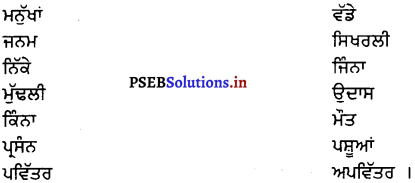
ਉੱਤਰ :
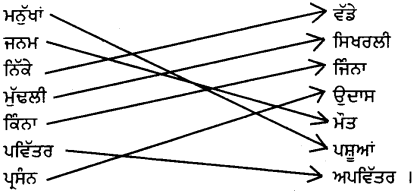
2. ਮੁਸਲਿਮ ਫ਼ਕੀਰਾਂ ਵਿੱਚ ਕਰਾਮਾਤ ਦੀ ਬੜੀ ਚਰਚਾ ਹੈ ਤੇ ਇਸ ਨੂੰ ਰੂਹਾਨੀ ਵਡਿਆਈ ਦੀ ਨਿਸ਼ਾਨੀ ਸਮਝਿਆ ਜਾਂਦਾ ਹੈ ਪਰ ਬਾਬਾ ਫ਼ਰੀਦ ਅਜਿਹੀਆਂ ਗੱਲਾਂ ਪਸੰਦ ਨਹੀਂ ਸਨ ਕਰਦੇ। ਇੱਕ ਵੇਰ ਸ਼ੇਖ਼ ਫ਼ਰੀਦ ਤੇ ਸ਼ੇਖ਼ ਬਹਾਉੱਦੀਨ ਸੈਰ ਕਰਦੇ ਦੂਰ ਨਿੱਕਲ ਗਏ ਤੇ ਰਾਹ ਵਿੱਚ ਚਰਚਾ ਛਿੜ ਪਈ ਕਿ ਕਰਾਮਾਤ ਵੱਡੀ ਹੈ ਜਾਂ ਮੁਲਾਕਾਤ ? ਬਾਬਾ ਫ਼ਰੀਦ ਇਨਸਾਨੀ ਮੁਲਾਕਾਤ ਨੂੰ ਵੱਡਾ ਕਹਿੰਦੇ ਸਨ ਤੇ ਬਹਾਉੱਦੀਨ ਕਰਾਮਾਤ ਨੂੰ ! ਜਦੋਂ ਦੋਵੇਂ ਦਰਵੇਸ਼ ਚੱਲਦੇ ਚੱਲਦੇ ਨਗਰ ਪਾਸ ਪਹੁੰਚੇ, ਤਾਂ ਸਖ਼ਤ ਮੀਂਹ – ਹਨੇਰੀ ਆ ਗਈ ਤੇ ਤੂਫ਼ਾਨ ਝੱਲਣ ਲੱਗਾ ਬਾਬਾ ਫ਼ਰੀਦ ਹੱਸ ਕੇ ਕਹਿਣ ਲੱਗੇ, ‘ਸ਼ੇਖ਼ ਜੀ, ਹੁਣ ਵਕਤ ਹੈ, ਕਰਾਮਾਤ ਦਿਖਾਓ, ਤਾਂਕਿ ਆਫ਼ਤ ਤੋਂ ਬਚਾਅ ਹੋ ਸਕੇ।” ਸ਼ੇਖ਼ ਬਹਾਉੱਦੀਨ ਦਾ ਜਵਾਬ ਸੀ, “ਇੰਨੀ ਛੇਤੀ ਕਰਾਮਾਤ ਕਿਵੇਂ ਹੋ ਸਕਦੀ ਹੈ ? ਮੈਂ ਕੀ ਕਰ ਸਕਦਾ ਹਾਂ ?” ਸ਼ੇਖ਼ ਫ਼ਰੀਦ ਜੀ ਨੇ ਕਿਹਾ, “ਇਸ ਪਿੰਡ ਵਿੱਚ ਇੱਕ ਗ਼ਰੀਬੜਾ ਜਿਹਾ ਬੰਦਾ ਹੈ, ਜੋ ਕਿ ਸਾਡਾ ਮੇਲੀ – ਮੁਲਾਕਾਤੀ ਹੈ, ਜਾਣੁ – ਪਛਾਣੁ ਹੈ, ਆਪਾਂ ਉਸ ਪਾਸ ਚੱਲਦੇ ਹਾਂ।” ਦੋਵੇਂ ਉਸ ਦੇ ਘਰ ਚਲੇ ਗਏ। ਉਸ ਨੇ ਆਦਰ ਨਾਲ ਫ਼ਕੀਰਾਂ ਨੂੰ ਸਫ਼ ‘ਤੇ ਬਠਾਇਆ, ਅੱਗ ਬਾਲ ਕੇ ਪਾਣੀ ਗਰਮ ਕੀਤਾ ਤੇ ਹੱਥ – ਪੈਰ ਧੁਆ ਕੇ ਸਰਦਾ – ਬਣਦਾ ਭੋਜਨ ਖੁਆਇਆ ਅਖ਼ੀਰ ਇਸ ਪ੍ਰੇਮੀ – ਜਿਊੜੇ ਨੇ ਅਰਾਮ ਲਈ ਕੱਪੜੇ ਵੀ ਵਿਛਾ ਦਿੱਤੇ। ਦੋਵੇਂ ਫ਼ਕੀਰ ਇਸ ਪਰਾਹੁਣਚਾਰੀ ‘ਤੇ ਬੜੇ ਖ਼ੁਸ਼ ਹੋਏ। ਸ਼ੇਖ਼ ਫ਼ਰੀਦ ਹੱਸ ਕੇ ਕਹਿਣ ਲੱਗੇ, “ਦੱਸੋ ਸ਼ੇਖ਼ ਜੀ ? ਕਿਸ ਚੀਜ਼ ਵਿੱਚ ਵਡਿਆਈ ਹੈ ?” ਬਹਾਉੱਦੀਨ ਦਾ ਜਵਾਬ ਸੀ ਕਿ, “ਤੁਹਾਡੀ ਗੱਲ ਠੀਕ ਹੈ, ਕਰਾਮਾਤ ਨਾਲੋਂ ਮੁਲਾਕਾਤ ਸੱਚ – ਮੁੱਚ ਵੱਡੀ ਹੈ।”
ਉੱਪਰ ਦਿੱਤੇ ਪੈਰੇ ਨੂੰ ਪੜ੍ਹ ਕੇ ਹੇਠ ਲਿਖੇ ਬਹੁਵਿਕਲਪੀ ਪ੍ਰਸ਼ਨਾਂ ਦੇ ਸਹੀ ਉੱਤਰ ਚੁਣੋ :
ਪ੍ਰਸ਼ਨ 1.
ਉਪਰੋਕਤ ਪੈਰਾ ਕਿਸ ਪਾਠ ਵਿਚੋਂ ਹੈ ?
(ਉ) ਪੰਜਾਬ
(ਅ) ਲੋਹੜੀ
(ਈ) ਰੂਪ ਨਗਰ
(ਸ) ਸ਼ੇਖ਼ ਫ਼ਰੀਦ।
ਉੱਤਰ :
(ਸ) ਸ਼ੇਖ਼ ਫ਼ਰੀਦ।
ਪ੍ਰਸ਼ਨ 2.
ਉਪਰੋਕਤ ਪੈਰਾ ਜਿਸ ਪਾਠ ਵਿਚੋਂ ਹੈ, ਉਸਦੇ ਲੇਖਕ ਦਾ ਨਾਂ ਲਿਖੋ।
(ਉ) ਪ੍ਰਿੰ: ਸੰਤ ਸਿੰਘ ਸੇਖੋਂ
(ਅ) ਦਰਸ਼ਨ ਸਿੰਘ ਆਸ਼ਟ
(ਈ) ਪ੍ਰੋ: ਸੁਰਜੀਤ ਸਿੰਘ ਮਾਨ
(ਸ) ਪ੍ਰੋ ਪਿਆਰਾ ਸਿੰਘ ਪਦਮ।
ਉੱਤਰ :
(ਸ) ਪ੍ਰੋ. ਪਿਆਰਾ ਸਿੰਘ ਪਦਮ।
ਪ੍ਰਸ਼ਨ 3.
ਮੁਸਲਿਮ ਫ਼ਕੀਰਾਂ ਵਿਚ ਕਿਹੜੀ ਚੀਜ਼ ਰੂਹਾਨੀ ਵਡਿਆਈ ਦੀ ਨਿਸ਼ਾਨੀ ਸਮਝੀ ਜਾਂਦੀ ਹੈ ?
ਬਾਬਾ ਫ਼ਰੀਦ ਜੀ ਨੂੰ ਕਿਹੜੀ ਗੱਲ ਪਸੰਦ ਨਹੀਂ ਸੀ ?
(ਉ) ਕਰਾਮਾਤ
(ਅ) ਹਿਸਥੀ ਜੀਵਨ
(ਈ) ਘਰ – ਤਿਆਗ
(ਸ) ਜੰਗਲ – ਵਾਸ।
ਉੱਤਰ :
(ੳ) ਕਰਾਮਾਤ।
ਪ੍ਰਸ਼ਨ 4.
ਸ਼ੇਖ਼ ਫ਼ਰੀਦ ਜੀ ਦੇ ਨਾਲ ਕੌਣ ਸੈਰ ਕਰਨ ਨਿਕਲੇ ਸਨ ?
(ਉ) ਸ਼ੇਖ਼ ਬਹਿਲੋਲ
(ਅ) ਫ਼ਰੀਦ ਸਾਨੀ
(ਈ) ਸ਼ੇਖ਼ ਬਹਾਉੱਦੀਨ
(ਸ) ਸ਼ੇਖ਼ ਨਿਜ਼ਾਮੁੱਦੀਨ।
ਉੱਤਰ :
(ਈ) ਸ਼ੇਖ਼ ਬਹਾਉੱਦੀਨ।
ਪ੍ਰਸ਼ਨ 5.
ਬਾਬਾ ਫ਼ਰੀਦ ਜੀ ਕਿਸ ਨੂੰ ਵੱਡਾ ਦੱਸ ਰਹੇ ਸਨ ?
(ਉ) ਕਰਾਮਾਤ
(ਆ) ਇਨਸਾਨੀ ਮੁਲਾਕਾਤ ਨੂੰ
(ਈ) ਘਰ – ਤਿਆਗ ਨੂੰ।
(ਸ) ਗ੍ਰਹਿਸਤ ਨੂੰ।
ਉੱਤਰ :
(ਅ) ਇਨਸਾਨੀ ਮੁਲਾਕਾਤ ਨੂੰ।
ਪ੍ਰਸ਼ਨ 6.
ਸ਼ੇਖ ਬਹਾਉੱਦੀਨ ਕਿਸ ਚੀਜ਼ ਨੂੰ ਵੱਡਾ ਕਹਿ ਰਹੇ ਹਨ ?
(ਉ) ਕਰਾਮਾਤ ਨੂੰ
(ਅ) ਇਨਸਾਨੀ ਮੁਲਾਕਾਤ ਨੂੰ
(ਬ) ਇਨਸਾਨੀ ਮੁਲਾਕਾਤ ਨੂੰ !
(ਸ) ਗ੍ਰਹਿਸਤ ਨੂੰ।
ਉੱਤਰ :
(ੳ) ਕਰਾਮਾਤ ਨੂੰ।
ਪ੍ਰਸ਼ਨ 7.
ਸ਼ੇਖ਼ ਫ਼ਰੀਦ ਨੇ ਸ਼ੇਖ਼ ਬਹਾਉੱਦੀਨ ਨੂੰ ਕਿਸ ਗੱਲ ਲਈ ਕਰਾਮਾਤ ਦਿਖਾਉਣ ਲਈ ਕਿਹਾ ?
(ਉ) ਮੀਂਹ – ਹਨੇਰੀ ਤੇ ਝੱਖੜ ਤੋਂ ਬਚਾ ਲਈ
(ਆ) ਭੂਤਾਂ – ਪ੍ਰੇਤਾਂ ਤੋਂ ਬਚਾ ਲਈ।
(ਈ) ਅਸਮਾਨੀ ਬਿਜਲੀ ਤੋਂ ਬਚਾ ਲਈ
(ਸ) ਖੂਨੀ ਜਾਨਵਰਾਂ ਤੋਂ ਬਚਾ ਲਈ।
ਉੱਤਰ :
(ੳ) ਮੀਂਹ – ਹਨੇਰੀ ਤੇ ਝੱਖੜ ਤੋਂ ਬਚਾ ਲਈ।
ਪ੍ਰਸ਼ਨ 8.
ਸ਼ੇਖ਼ ਫ਼ਰੀਦ ਜੀ ਸ਼ੇਖ਼ ਬਹਾਉੱਦੀਨ ਨੂੰ ਕਿਸੇ ਦੇ ਘਰ ਲੈ ਗਏ ?
(ਉ) ਇਕ ਸ਼ਗਿਰਦ ਦੇ
(ਅ) ਇਕ ਗਰੀਬੜੇ ਜਿਹੇ ਬੰਦੇ ਦੇ
(ਇ) ਇਕ ਫ਼ਕੀਰ ਦੀ ਝੁੱਗੀ ਵਿਚ
(ਸ) ਇਕ ਅਮੀਰ ਆਦਮੀ ਦੇ।
ਉੱਤਰ :
(ਅ) ਇਕ ਗ਼ਰੀਬੜੇ ਜਿਹੇ ਬੰਦੇ ਦੇ।
ਪ੍ਰਸ਼ਨ 9.
ਗ਼ਰੀਬੜੇ ਜਿਹੇ ਬੰਦੇ ਨੇ ਸ਼ੇਖ਼ ਫ਼ਰੀਦ ਤੇ ਸ਼ੇਖ਼ ਬਹਾਉੱਦੀਨ ਨੂੰ ਕਿੱਥੇ ਬਿਠਾਇਆ ?
(ਉ) ਮੰਜੇ ‘ਤੇ।
(ਅ) ਪੀਹੜੇ ’ਤੇ
(ਇ) ਸੋਫ਼ੇ ‘ਤੇ
(ਸ) ਸਫ਼ ‘ਤੇ।
ਉੱਤਰ :
(ਸ) ਸਫ਼ ‘ਤੇ।
ਪ੍ਰਸ਼ਨ 10.
ਅੰਤ ਵਿਚ ਗ਼ਰੀਬ ਪ੍ਰੇਮੀ – ਜਿਊੜੇ ਨੇ ਫ਼ਕੀਰਾਂ ਦੇ ਅਰਾਮ ਲਈ ਕੀ ਕੀਤਾ ?
(ੳ) ਭੋਜਨ ਛਕਾਇਆ
(ਅ) ਪੈਰ ਧੁਆਏ
(ਈ) ਧੂਣੀ ਬਾਲੀ।
(ਸ) ਅਰਾਮ ਲਈ ਕੱਪੜੇ ਵਿਛਾ ਦਿੱਤੇ।
ਉੱਤਰ :
(ਸ) ਅਰਾਮ ਲਈ ਕੱਪੜੇ ਵਿਛਾ ਦਿੱਤੇ।
ਪ੍ਰਸ਼ਨ 1.
ਦੋਵੇਂ ਫ਼ਕੀਰ ਗ਼ਰੀਬ ਆਦਮੀ ਦੀ ਕਿਸ ਗੱਲ ਤੋਂ ਖੁਸ਼ ਹੋਏ ?
(ੳ) ਭੋਜਨ – ਪਾਣੀ ਤੋਂ
(ਅ) ਦੇਖ – ਭਾਲ ਤੋਂ
(ਇ) ਮੂੰਹ ਦੀ ਮਿਠਾਸ ਤੋਂ
(ਸ) ਪ੍ਰਾਹੁਣਚਾਰੀ ਤੋਂ।
ਉੱਤਰ :
(ਸ) ਪ੍ਰਾਹੁਣਚਾਰੀ ਤੋਂ।
ਪ੍ਰਸ਼ਨ 12.
ਅੰਤ ਵਿਚ ਸ਼ੇਖ ਬਹਾਉੱਦੀਨ ਨੂੰ ਕਰਾਮਾਤ ਨਾਲੋਂ ਕਿਹੜੀ ਚੀਜ਼ ਵੱਡੀ ਪ੍ਰਤੀਤ ਹੋਈ ?
(ਉ) ਮੁਲਾਕਾਤ
(ਅ) ਪ੍ਰਾਹੁਣਚਾਰੀ
(ਈ) ਹਿਸਤ
(ਸ) ਘਰ – ਤਿਆਗ।
ਉੱਤਰ :
(ੳ) ਮੁਲਾਕਾਤ
ਪ੍ਰਸ਼ਨ 13.
ਉਪਰੋਕਤ ਪੈਰੇ ਵਿਚ ਆਮ ਨਾਂਵ ਦੀ ਠੀਕ ਉਦਾਹਰਨ ਕਿਹੜੀ ਹੈ ?
(ਉ) ਸ਼ੇਖ਼ ਫ਼ਰੀਦ ਜੀ
(ਅ) ਸ਼ੇਖ਼ ਬਹਾਉੱਦੀਨ ਜੀ
(ਏ) ਭੋਜਨ
(ਸ) ਫ਼ਕੀਰਾਂ/ਗੱਲਾਂ/ਹ/ਦਰਵੇਸ਼/ਨਗਰ/ਮੀਂਹ – ਹਨੇਰੀ/ਤੂਫ਼ਾਨ/ਵਕਤ/ਆਫ਼ਤ ਪਿੰਡ/ਬੰਦਾ/ਸਫ਼/ਅੱਗ/ਹੱਥ – ਪੈਰ/ਚੀਜ਼/ਜਵਾਬ।
ਉੱਤਰ :
(ਸ) ਫ਼ਕੀਰਾਂ/ਗੱਲਾਂ/ਹ/ਦਰਵੇਸ਼/ਨਗਰ/ਮੀਂਹ – ਹਨੇਰੀ/ਤੂਫ਼ਾਨ/ਵਕਤ/ਆਫ਼ਤ ਪਿੰਡ/ਬੰਦਾ/ਸਫ਼/ਅੱਗ/ਹੱਥ – ਪੈਰ/ਚੀਜ਼/ਜਵਾਬ।
ਪ੍ਰਸ਼ਨ 14.
ਉਪਰੋਕਤ ਪੈਰੇ ਵਿਚੋਂ ਵਸਤੂਵਾਚਕ ਨਾਂਵ ਦੀ ਠੀਕ ਉਦਾਹਰਨ ਚੁਣੋ
(ਉ) ਪਾਣੀ/ਭੋਜਨ/ਕੱਪੜੇ
(ਅ) ਕਰਾਮਾਤ
(ੲ) ਸਬਰ – ਸੰਤੋਖ
(ਸ) ਸ਼ੇਖ਼ ਬਹਾਉੱਦੀਨ।
ਉੱਤਰ :
(ੳ) ਪਾਣੀ/ਭੋਜਨ/ਕੱਪੜੇ !
ਪ੍ਰਸ਼ਨ 15.
ਉਪਰੋਕਤ ਪੈਰੇ ਵਿਚ ਪੜਨਾਂਵ ਦੀ ਠੀਕ ਉਦਾਹਰਨ ਕਿਹੜੀ ਹੈ ?
(ਉ) ਗਰੀਬ
(ਆ) ਕਰਾਮਾਤ
(ਏ) ਅੱਗ
(ਸ) ਇਸ/ਮੈਂਜੋ/ਆਪਾਂ/ਉਸ
ਉੱਤਰ :
(ਸ) ਇਸ/ਮੈਂਜੋ/ਆਪਾਂ/ਉਸ
ਪ੍ਰਸ਼ਨ 16.
ਉਪਰੋਕਤ ਪੈਰੇ ਵਿਚੋਂ ਵਿਸ਼ੇਸ਼ਣ ਦੀ ਠੀਕ ਉਦਾਹਰਨ ਚੁਣੋ
(ਉ) ਕਹਿਣ
(ਅ) ਨਗਰ
(ਈ) ਮੀਂਹ – ਹਨੇਰੀ
(ਸ) ਮੁਸਲਿਮ/ਬੜਾ/ਰੂਹਾਨੀ ਵਡਿਆਈ/ਅਜਿਹੀਆਂ ਵੱਡੀ/ਇਨਸਾਨੀ/ਵੱਡਾ/ਦੋਵੇਂ/ਸਖ਼ਤ/ਗਰੀਬੜਾ ਜਿਹਾ/ਗਰਮਸਰਦਾ – ਬਣਦਾਬੜੇ।
ਉੱਤਰ :
(ਸ) ਮੁਸਲਿਮ/ਬੜਾ/ਰੂਹਾਨੀ ਵਡਿਆਈ/ਅਜਿਹੀਆਂ ਵੱਡੀ/ਇਨਸਾਨੀ/ਵੱਡਾ ਦੋਵੇਂ ਸਖ਼ਤ/ਗ਼ਰੀਬੜਾ ਜਿਹਾ/ਗਰਮ/ਸਰਦਾ – ਬਣਦਾ/ਬੜੇ।
ਪ੍ਰਸ਼ਨ 17.
ਉਪਰੋਕਤ ਪੈਰੇ ਵਿਚੋਂ ਕਿਰਿਆ ਦੀ ਠੀਕ ਉਦਾਹਰਨ ਚੁਣੋ
(ਉ) ਮੁਲਾਕਾਤ
(ਅ) ਕਰਾਮਾਤ
(ਈ) ਸ਼ੇਖ਼
(ਸ) ਹੈ/ਸਮਝਿਆ ਜਾਂਦਾ ਹੈ/ਸਨ ਕਰਦੇ/ਨਿਕਲ ਗਏ/ਛਿੜ ਪਈ/ਕਹਿੰਦੇ ਸਨ ਪਹੁੰਚੇ/ਦਿਖਾਓ ਬਚਾਅ ਹੋ ਸਕੇਕੀ/ਹੋ ਸਕਦੀ ਹੈਕਰ ਸਕਦਾ ਹਾਂ/ਕਿਹਾ ਚਲਦੇ ਹਾਂ/ਚਲੇ ਗਏ/ਬਿਠਾਇਆ/ਕੀਤਾ/ਖੁਆਇਆ/ਵਿਛਾ ਦਿੱਤੇ ਹੋਏ ਕਹਿਣ ਲੱਗੇ।
ਉੱਤਰ :
(ਸ) ਹੈ/ਸਮਝਿਆ ਜਾਂਦਾ ਹੈਸਨ ਕਰਦੇ/ਨਿਕਲ ਗਏ/ਛਿੜ ਪਈ/ਕਹਿੰਦੇ ਸਨ ਪਹੁੰਚੇ/ਦਿਖਾਓ/ਬਚਾਅ ਹੋ ਸਕੇ/ਸੀ/ਹੋ ਸਕਦੀ ਹੈਕਰ ਸਕਦਾ ਹਾਂ/ਕਿਹਾ/ਚਲਦੇ ਹਾਂ/ਚਲੇ ਗਏ/ਬਿਠਾਇਆ/ਕੀਤਾ/ਖੁਆਇਆ/ਵਿਛਾ ਦਿੱਤੇ ਹੋਏ ਕਹਿਣ ਲੱਗੇ।
ਪ੍ਰਸ਼ਨ 18.
‘ਬੰਦਾ ਸ਼ਬਦ ਦਾ ਲਿੰਗ ਬਦਲੋ
(ੳ) ਇਸਤਰੀ
(ਅ) ਜ਼ਨਾਨੀ/ਬੰਦੀ
(ਇ) ਰੰਨ
(ਸ ਔਰਤ !
ਉੱਤਰ :
(ਅ) ਜ਼ਨਾਨੀ/ਬੰਦੀ।
ਪ੍ਰਸ਼ਨ 19.
ਹੇਠ ਲਿਖਿਆਂ ਵਿਚ ਕਿਰਿਆ ਕਿਹੜੀ ਹੈ ?
(ਉ) ਕਰਦੇ
(ਅ) ਜਾਣੂ – ਪਛਾਣੂ
(ਇ) ਕਰਾਮਾਤ
(ਸ) ਮੁਲਾਕਾਤ !
ਉੱਤਰ :
(ੳ) ਕਰਦੇ !
ਪ੍ਰਸ਼ਨ 20.
ਉਪਰੋਕਤ ਪੈਰੇ ਵਿਚੋਂ ਦੋ ਗੁਣਵਾਚਕ ਵਿਸ਼ੇਸ਼ਣ ਲਿਖੋ।
ਉੱਤਰ :
ਵੱਡੀ, ਗ਼ਰੀਬੜਾ।
ਪ੍ਰਸ਼ਨ 21.
‘ਦਰਵੇਸ਼ ਸ਼ਬਦ ਪੁਲਿੰਗ ਹੈ ਜਾਂ ਇਸਤਰੀ ਲਿੰਗ ?
ਉੱਤਰ :
ਪੁਲਿੰਗ
ਪ੍ਰਸ਼ਨ 22. ਉਪਰੋਕਤ ਪੈਰੇ ਵਿਚੋਂ ਹੇਠ ਲਿਖੇ ਵਿਸਰਾਮ ਚਿੰਨ੍ਹ ਲਿਖੋ
(ਉ) ਡੰਡੀ
(ਅ) ਕਾਮਾ
(ਈ) ਦੋਹਰੇ ਪੁੱਠੇ ਕਾਮੇ
(ਸ) ਪ੍ਰਸ਼ਨਿਕ ਚਿੰਨ੍ਹ
(ਹ) ਛੁੱਟ – ਮਰੋੜੀ
(ਕ) ਜੋੜਨੀ
(ਖ) ਵਿਸਮਿਕ ਚਿੰਨ੍ਹ
ਉੱਤਰ :
(ਉ) ਡੰਡੀ ( । )
(ਅ) ਕਾਮਾ ( , )
(ਈ) ਦੋਹਰੇ ਪੁੱਠੇ ਕਾਮੇ ( …. )
(ਸ) ਪ੍ਰਸ਼ਨਿਕ ਚਿੰਨ੍ਹ ( ? )
(ਹ) ਛੁੱਟ – ਮਰੋੜੀ ( ‘ )
(ਕ) ਜੋੜਨੀ ( – )
(ਖ) ਵਿਸਮਿਕ ਚਿੰਨ੍ਹ ( ! )
ਪ੍ਰਸ਼ਨ 23.
ਉਪਰੋਕਤ ਪੈਰੇ ਵਿਚੋਂ ਵਿਰੋਧੀ ਸ਼ਬਦਾਂ ਦਾ ਸਹੀ ਮਿਲਾਣ ਕਰੋ –
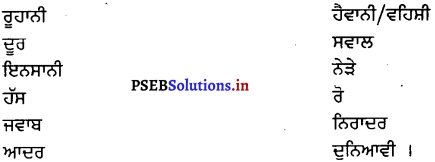
ਉੱਤਰ :
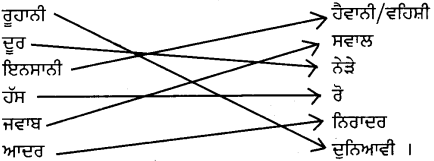
3. ਬਾਬਾ ਫ਼ਰੀਦ ਵੱਡ – ਪਰਿਵਾਰੇ ਗ੍ਰਹਿਸਥੀ ਪੁਰਸ਼ ਸਨ। ਆਪ ਦੀਆਂ ਤਿੰਨ ਸ਼ਾਦੀਆਂ ਸਨ, ਜਿਨ੍ਹਾਂ ਤੋਂ ਪੰਜ ਲੜਕੇ ਤੇ ਤਿੰਨ ਲੜਕੀਆਂ ਪੈਦਾ ਹੋਈਆਂ ! ਆਪ ਦੇ ਪੁੱਤਰ ਖੇਤੀ – ਬਾੜੀ ਕਰ ਕੇ ਗੁਜ਼ਾਰਾ ਕਰਦੇ ਸਨ ਤੇ ਇੱਕ ਸਰਕਾਰੀ ਨੌਕਰੀ ਵਿੱਚ ਸੀ। ਪੁੱਤਰਾਂ ਨੂੰ ਖ਼ਿਆਲ ਸੀ ਕਿ ਚਿਸ਼ਤੀ ਫ਼ਿਰਕੇ ਦੀ ਗੱਦੀ ਖ਼ਾਨਦਾਨੀ ਤੌਰ ‘ਤੇ ਸਾਨੂੰ ਮਿਲ ਹੀ ਜਾਵੇਗੀ ਲੇਕਿਨ ਬਾਬਾ ਫ਼ਰੀਦ ਨੇ ਅੰਤ ਸਮੇਂ ਆਪਣਾ ਮੁਸੱਲਾ ਤੇ ਤਸਬੀ ਮਾਲਾ) ਸੱਯਦ ਮਹਿਮੂਦ ਕਿਆਨੀ ਦੇ ਹੱਥ, ਸ਼ੇਖ਼ ਨਿਜ਼ਾਮੁਦੀਨ ਪਾਸ ਦਿੱਲੀ ਭੇਜ ਕੇ ਉਸ ਨੂੰ ਆਪਣਾ ਜਾਨਸ਼ੀਨ ਥਾਪ ਦਿੱਤਾ। ਇਸ ਤੋਂ ਜ਼ਾਹਰ ਹੈ ਕਿ ਆਪ ਦੇ ਦਿਲ ਵਿੱਚ ਆਪਣੇ ਪਰਿਵਾਰ ਦੀ ਵੀ ਬਹੁਤੀ ਖਿੱਚ ਨਹੀਂ ਸੀ। ਉਹ ਜਿਸ ਨੂੰ ਰੂਹਾਨੀ ਤੌਰ ‘ਤੇ ਉੱਤਮ ਸਮਝਦੇ ਸਨ, ਉਸੇ ਨੂੰ ਉਹਨਾਂ ਗੱਦੀ ਦਿੱਤੀ।
ਉੱਪਰ ਦਿੱਤੇ ਪੈਰੇ ਨੂੰ ਪੜ੍ਹ ਕੇ ਹੇਠ ਲਿਖੇ ਬਹੁਵਿਕਲਪੀ ਪ੍ਰਸ਼ਨਾਂ ਦੇ ਸਹੀ ਉੱਤਰ ਚੁਣੋ :
ਪ੍ਰਸ਼ਨ 1.
ਸ਼ੇਖ਼ ਫ਼ਰੀਦ ਜੀ ਦੀਆਂ ਕਿੰਨੀਆਂ ਸ਼ਾਦੀਆਂ ਹੋਈਆਂ ਸਨ ?
(ਉ) ਦੋ
(ਅ) ਤਿੰਨ
(ਇ) ਚਾਰ
(ਸ) ਪੰਜ।
ਉੱਤਰ :
(ਅ) ਤਿੰਨ।
ਪ੍ਰਸ਼ਨ 2.
ਸ਼ੇਖ਼ ਫ਼ਰੀਦ ਜੀ ਦੇ ਕਿੰਨੇ ਲੜਕੇ ਸਨ ?
(ਉ) ਪੰਜ
(ਅ) ਤਿੰਨ
(ਇ) ਦੋ
(ਸ) ਇਕ।
ਉੱਤਰ :
(ੳ) ਪੰਜ।
ਪ੍ਰਸ਼ਨ 3.
ਸ਼ੇਖ਼ ਫ਼ਰੀਦ ਜੀ ਦੀਆਂ ਕਿੰਨੀਆਂ ਲੜਕੀਆਂ ਸਨ ?
(ਉ) ਚਾਰ
(ਅ) ਤਿੰਨ
(ਈ) ਦੋ
(ਸ) ਇਕ।
ਉੱਤਰ :
(ਅ) ਤਿੰਨ।
ਪ੍ਰਸ਼ਨ 4.
ਸ਼ੇਖ਼ ਫ਼ਰੀਦ ਜੀ ਨੇ ਆਪਣੀ ਗੱਦੀ ਕਿਸ ਨੂੰ ਸੌਂਪੀ ?
(ੳ) ਸੱਯਦ ਮਹਿਮੂਦ ਕਿਆਨੀ ਨੂੰ
(ਅ) ਸ਼ੇਖ਼ ਨਿਜ਼ਾਮੁੱਦੀਨ ਨੂੰ
(ਈ) ਸੱਯਦ ਬੁੱਲ੍ਹੇ ਸ਼ਾਹ ਨੂੰ
(ਸ) ਫ਼ਰੀਦ ਸਾਨੀ ਨੂੰ !
ਉੱਤਰ :
(ਅ) ਸ਼ੇਖ਼ ਨਿਜ਼ਾਮੁੱਦੀਨ ਨੂੰ।
ਪ੍ਰਸ਼ਨ 5.
ਸ਼ੇਖ਼ ਫ਼ਰੀਦ ਜੀ ਨੇ ਗੱਦੀ ਦਾ ਹੱਕਦਾਰ ਕਿਸ ਨੂੰ ਸਮਝਿਆ ?
(ਉ) ਜੋ ਰੂਹਾਨੀ ਤੌਰ ‘ਤੇ ਉੱਤਮ ਸੀ
(ਆ) ਜੋ ਗ੍ਰਹਿਸਥੀ ਸੀ।
(ਇ) ਜੋ ਸ਼ਰ੍ਹਾਂ ਦਾ ਪਾਬੰਦ ਸੀ
(ਸ) ਜੋ ਹਰਮਨ ਪਿਆਰਾ ਸੀ।
ਉੱਤਰ :
(ਉ) ਜੋ ਰੂਹਾਨੀ ਤੌਰ ‘ਤੇ ਉੱਤਮ ਸੀ।
ਸ਼ਨ 6. ਸ਼ੇਖ਼ ਫ਼ਰੀਦ ਜੀ ਕਿਸ ਸੂਫ਼ੀ ਫ਼ਿਰਕੇ ਨਾਲ ਸੰਬੰਧਿਤ ਸਨ ?
(ਉ) ਚਿਸ਼ਤੀ।
(ਅ) ਕਾਦਰਿਆਨੀ
(ਈ) ਮਲਾਮਤੀ
(ਸ) ਬਹਾਬਲੀ
ਉੱਤਰ :
(ਉ) ਚਿਸ਼ਤੀ।
ਪ੍ਰਸ਼ਨ 7.
ਸ਼ੇਖ਼ ਫ਼ਰੀਦ ਜੀ ਦੇ ਪਰਿਵਾਰ ਵਿਚੋਂ ਸਰਕਾਰੀ ਨੌਕਰੀ ਕੌਣ ਕਰਦਾ ਸੀ ?
(ਉ) ਉਨ੍ਹਾਂ ਦਾ ਇਕ ਭਰਾ
(ਅ) ਉਨ੍ਹਾਂ ਦਾ ਇਕ ਪੁੱਤਰ
(ਈ) ਉਨ੍ਹਾਂ ਦਾ ਇਕ ਭਤੀਜਾ
(ਸ) ਉਨ੍ਹਾਂ ਦਾ ਇਕ ਚਾਚਾ।
ਉੱਤਰ :
(ਅ) ਉਨ੍ਹਾਂ ਦਾ ਇਕ ਪੁੱਤਰ।
ਪ੍ਰਸ਼ਨ 8.
ਸ਼ੇਖ਼ ਫ਼ਰੀਦ ਜੀ ਨੇ ਸ਼ੇਖ਼ ਨਿਜ਼ਾਮੁੱਦੀਨ ਨੂੰ ਆਪਣਾ ਜਾਨਸ਼ੀਨ ਥਾਪਣ ਲਈ ਸੱਯਦ ਮਹਿਮੂਦ ਕਿਆਨੀ ਦੇ ਹੱਥ ਕੀ ਭੇਜਿਆ ?
(ਉ) ਲੋਟਾ
(ਅ) ਕੰਬਲੀ
(ਈ) ਪਗੜੀ।
(ਸ) ਮੁਸੱਲਾ ਤੇ ਤਸਬੀ ਮਾਲਾ)।
ਉੱਤਰ :
(ਸ) ਮੁਸੱਲਾ ਤੇ ਤਸਬੀ ਮਾਲਾ)।
ਪ੍ਰਸ਼ਨ 9.
ਸ਼ੇਖ਼ ਫ਼ਰੀਦ ਜੀ ਦਾ ਪਰਿਵਾਰ ਕਿੱਡਾ ਕੁ ਸੀ ?
(ਉ) ਛੋਟਾ
(ਅ) ਵੱਡਾ
(ਈ) ਦਰਮਿਆਨਾ
(ਸ) ਨਾ ਹੋਣ ਬਰਾਬਰ !
ਉੱਤਰ :
(ਆ) ਵੱਡਾ।
ਪ੍ਰਸ਼ਨ 10.
ਇਸ ਪਾਠ ਵਿਚ ਖ਼ਾਸ ਨਾਂਵ ਦੀ ਠੀਕ ਉਦਾਹਰਨ ਕਿਹੜੀ ਹੈ ?
(ਉ) ਬਾਬਾ ਫ਼ਰੀਦ/ਸੱਯਦ ਮਹਿਮੂਦ ਕਿਆਨੀ/ਸ਼ੇਖ਼ ਨਿਜ਼ਾਮੁੱਦੀਨ
(ਅ) ਗੱਦੀ
(ਈ) ਮੁਸੱਲਾ
(ਸ) ਦਿਲ।
ਉੱਤਰ :
(ਉ) ਬਾਬਾ ਫ਼ਰੀਦ/ਸੱਯਦ ਮਹਿਮੂਦ ਕਿਆਨੀ/ਸ਼ੇਖ਼ ਨਿਜ਼ਾਮੁੱਦੀਨ
ਪ੍ਰਸ਼ਨ 11.
ਇਸ ਪਾਠ ਵਿਚ ਇਕੱਠਵਾਚਕ ਨਾਂਵ ਦੀ ਠੀਕ ਉਦਾਹਰਨ ਕਿਹੜੀ ਹੈ ?
(ਉ) ਪਰਿਵਾਰ
(ਅ) ਵੱਡ – ਪਰਵਾਰੇ
(ੲ) ਜ਼ਾਹਰ
(ਸ) ਖੇਤੀ – ਬਾੜੀ।
ਉੱਤਰ :
(ਉ) ਪਰਿਵਾਰ।
ਪ੍ਰਸ਼ਨ 12.
ਉਪਰੋਕਤ ਪੈਰੇ ਵਿਚ ਪੜਨਾਂਵ ਦੀ ਠੀਕ ਉਦਾਹਰਨ ਕਿਹੜੀ ਹੈ ?
(ਉ) ਨਹੀਂ
(ਅ) ਅੰਤ
(ੲ) ਫ਼ਿਰਕੇ
(ਸ) ਆਪ/ਜਿਨ੍ਹਾਂ/ਸਾਨੂੰ/ਉਸ/ਉਹ/ਜਿਸ/ਉਸੇ।
ਉੱਤਰ :
(ਸ) ਆਪ/ਜਿਨ੍ਹਾਂ/ਸਾਨੂੰ/ਉਸ/ਉਹ/ਜਿਸ/ਉਸੇ।
ਪ੍ਰਸ਼ਨ 13.
ਉਪਰੋਕਤ ਪੈਰੇ ਵਿਚ ਵਿਸ਼ੇਸ਼ਣ ਦੀ ਠੀਕ ਉਦਾਹਰਨ ਚੁਣੋ
(ਉ) ਪੁਰਸ਼
(ਅ) ਸ਼ਾਦੀਆਂ।
(ਈ) ਫ਼ਿਰਕਾ
(ਸ) ਵਡ – ਪਰਿਵਾਰੇ/ਹਿਸਥੀ/ਤਿੰਨ/ਪੰਜ/ਸਰਕਾਰੀ/ਚਿਸ਼ਤੀ/ਆਪਣਾ/ਉਤਮ।
ਉੱਤਰ :
(ਸ) ਵਡ – ਪਰਿਵਾਰੇ/ਹਿਸਥੀ/ਤਿੰਨ/ਪੰਜ/ਸਰਕਾਰੀ/ਚਿਸ਼ਤੀਆਪਣਾ/ਉੱਤਮ।
ਪ੍ਰਸ਼ਨ 14.
ਉਪਰੋਕਤ ਪੈਰੇ ਵਿਚ ਕਿਰਿਆ ਦੀ ਠੀਕ ਉਦਾਹਰਨ ਕਿਹੜੀ ਹੈ ?
(ਉ) ਪੁੱਤਰਾਂ
(ਅ) ਖ਼ਿਆਲ
(ਈ) ਦਿਲ
(ਸ) ਸਨ/ਪੈਦਾ ਹੋਈਆਂ/ਕਰਦੇ ਸਨ/ਸੀ/ਮਿਲ ਜਾਵੇਗੀ/ਥਾਪ ਦਿੱਤਾ/ਦਿੱਤੀ।
ਉੱਤਰ :
(ਸ) ਸਨ/ਪੈਦਾ ਹੋਈਆਂ/ਕਰਦੇ ਸਨ/ਸੀ/ਮਿਲ ਜਾਵੇਗੀ/ਥਾਪ ਦਿੱਤਾ/ਦਿੱਤੀ।
ਪ੍ਰਸ਼ਨ 15.
‘ਪੁਰਸ਼’ ਦਾ ਇਸਤਰੀ ਲਿੰਗ ਚੁਣੋ
(ਉ) ਤੀਵੀਂ
(ਅ) ਇਸਤਰੀ
(ਈ) ਔਰਤ
(ਸ) ਜ਼ਨਾਨੀ।
ਉੱਤਰ :
(ਅ) ਇਸਤਰੀ।
ਪ੍ਰਸ਼ਨ 16.
ਕਿਰਿਆ ਸ਼ਬਦ ਕਿਹੜਾ ਹੈ ?
(ਉ) ਦਿੱਤੀ
(ਅ) ਜ਼ਾਹਰ
(ਈ) ਜਿਸ
(ਸ) ਖ਼ਿਆਲ।
ਉੱਤਰ :
(ਉ) ਦਿੱਤੀ।
ਪ੍ਰਸ਼ਨ 17.
‘ਪਰਿਵਾਰ’ ਸ਼ਬਦ ਪੁਲਿੰਗ ਹੈ ਜਾਂ ਇਸਤਰੀ ਲਿੰਗ ?
ਉੱਤਰ :
ਪੁਲਿੰਗ।
ਪ੍ਰਸ਼ਨ 18.
ਉਪਰੋਕਤ ਪੈਰੇ ਵਿਚੋਂ ਹੇਠ ਲਿਖੇ ਵਿਸਰਾਮ ਚਿੰਨ੍ਹ ਲਿਖੋ
(ਉ) ਡੰਡੀ
(ਅ) ਕਾਮਾ
(ਈ) ਜੋੜਨੀ
(ਸ) ਬੈਕਟ
(ਹ) ਛੁੱਟ – ਮਰੋੜੀ
ਉੱਤਰ :
(ਉ) ਡੰਡੀ
(ਅ) ਕਾਮਾ
(ਈ) ਜੋੜਨੀ
(ਸ) ਬੈਕਟ
(ਹ) ਛੁੱਟ – ਮਰੋੜੀ
ਪ੍ਰਸ਼ਨ 19.
ਉਪਰੋਕਤ ਪੈਰੇ ਵਿਚੋਂ ਵਿਰੋਧੀ ਸ਼ਬਦਾਂ ਦਾ ਮਿਲਾਣ ਕਰੋ
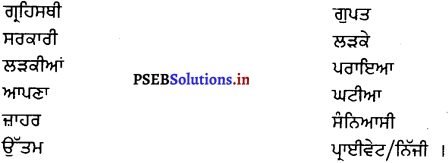
ਉੱਤਰ :
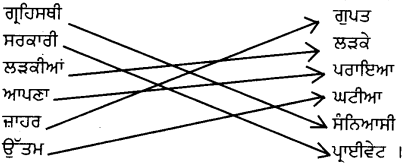
2. ਵਿਆਕਰਨ ਤੇ ਰਚਨਾਤਮਕ ਕਾਰਜ।
ਪ੍ਰਸ਼ਨ 1.
ਪੜਨਾਂਵ ਦੀਆਂ ਹੇਠ ਲਿਖੀਆਂ ਕਿਸਮਾਂ ਬਾਰੇ ਉਦਾਹਰਨਾਂ ਸਹਿਤ ਜਾਣਕਾਰੀ ਦਿਉ
ਨਿੱਜਵਾਚਕ ਪੜਨਾਂਵ, ਸੰਬੰਧਵਾਚਕ ਪੜਨਾਂਵ, ਪ੍ਰਸ਼ਨਵਾਚਕ ਪੜਨਾਂਵ, ਨਿਸਚੇਵਾਚਕ ਪੜਨਾਂਵ, ਅਨਿਸਚੇਵਾਚਕ ਪੜਨਾਂਵ।
ਉੱਤਰ :
1. ਨਿੱਜਵਾਚਕ ਪੜਨਾਂਵ – ਜਿਹੜਾ ਪੜਨਾਂਵ ਕਰਤਾ ਦੀ ਥਾਂ ਵਰਤਿਆ ਜਾਵੇ, ਜਾਂ ਕਰਤਾ ਦੇ ਨਾਲ ਆ ਕੇ ਉਸ ਦੀ ਵਿਸ਼ੇਸ਼ਤਾ ਦੱਸੇ, ਉਸ ਨੂੰ ‘ਨਿੱਜਵਾਚਕ ਪੜਨਾਂਵ’ ਆਖਿਆ ਜਾਂਦਾ ਹੈ; ਜਿਵੇਂ
(ਉ) ਮਨੁੱਖ ਆਪਣੀ ਕਿਸਮਤ ਆਪ ਬਣਾਉਂਦਾ ਹੈ।
(ਅ) ਮੈਂ ਆਪ ਉੱਥੇ ਗਿਆ !
ਇਨ੍ਹਾਂ ਵਿਚੋਂ ਪਹਿਲੇ ਵਾਕ ਵਿਚ ‘ਆਪ’ ਪੜਨਾਂਵ ਕਰਤਾ ‘ਮਨੁੱਖ’ ਦੀ ਥਾਂ ‘ਤੇ ਵਰਤਿਆ ਗਿਆ ਹੈ, ਪਰ ਦੂਜੇ ਵਾਕ ਵਿਚ ‘ਆਪ’ ਪੜਨਾਂਵ “ਮੈਂ” ਦੀ ਵਿਸ਼ੇਸ਼ਤਾ ਪ੍ਰਗਟ ਕਰਦਾ ਹੈ, ਇਸ ਕਰਕੇ ਇਹ ‘ਨਿੱਜਵਾਚਕ ਪੜਨਾਂਵ ਹੈ।
2. ਸੰਬੰਧਵਾਚਕ ਪੜਨਾਂਵ – ਜਿਹੜਾ ਸ਼ਬਦ ਪੜਨਾਂਵ ਹੁੰਦਾ ਹੋਇਆ ਵੀ ਯੋਜਕ ਵਾਂਗ ਵਾਕਾਂ ਨੂੰ ਆਪਸ ਵਿਚ ਜੋੜਨ ਦਾ ਕੰਮ ਕਰੇ, ਉਸ ਨੂੰ ‘ਸੰਬੰਧਵਾਚਕ ਪੜਨਾਂਵ’ ਆਖਿਆ ਜਾਂਦਾ ਹੈ; ਜਿਵੇਂ
(ਉ) ‘ਰਾਮ ਉਸੇ ਵਿਦਿਆਰਥੀ ਦਾ ਨਾਂ ਹੈ, ਜਿਹੜਾ ਕਲਾਸ ਵਿਚ ਬਹੁਤ ਰੌਲਾ ਪਾਉਂਦਾ ਹੈ।
(ਆਂ) “ਉਹ ਲੋਕ, ਜੋ ਆਪਸ ਵਿਚ ਪਿਆਰ ਕਰਦੇ ਹਨ, ਸੁਖੀ ਵਸਦੇ ਹਨ।
ਇਨ੍ਹਾਂ ਵਾਕਾਂ ਵਿਚ “ਜਿਹੜਾ’, ‘ਜੋਂ ਆਦਿ ਸ਼ਬਦ ਯੋਜਕਾਂ ਵਾਂਗ ਵਾਕਾਂ ਨੂੰ ਆਪਸ ਵਿਚ ਜੋੜਦੇ ਹਨ, ਇਸ ਕਰਕੇ ਇਹ ਸੰਬੰਧਵਾਚਕ ਪੜਨਾਂਵ ਹਨ।
3. ਪ੍ਰਸ਼ਨਵਾਚਕ ਪੜਨਾਂਵ – ਜਿਹੜੇ ਸ਼ਬਦ ਪੜਨਾਂਵ ਵੀ ਹੋਣ ਅਤੇ ਉਨ੍ਹਾਂ ਰਾਹੀਂ ਪ੍ਰਸ਼ਨ ਵੀ ਪੁੱਛਿਆ ਜਾਵੇ, ਉਨ੍ਹਾਂ ਨੂੰ “ਪ੍ਰਸ਼ਨਵਾਚਕ ਪੜਨਾਂਵ’ ਆਖਿਆ ਜਾਂਦਾ ਹੈ; ਜਿਵੇਂ
(ੳ) ਇੱਥੋਂ ਕੀ ਲੈਣਾ ਹੈ ?
(ਅ) ਸਲੇਟ ਕਿਸ ਨੇ ਤੋੜੀ ਹੈ ?
(ਈ) ਕੌਣ ਰੌਲਾ ਪਾ ਰਿਹਾ ਹੈ ?
ਇਨ੍ਹਾਂ ਵਾਕਾਂ ਵਿਚ “ਕੀ’, ‘ਕਿਸ’ ਤੇ ‘ਕੌਣ ਪ੍ਰਸ਼ਨਵਾਚਕ ਪੜਨਾਂਵ ਹਨ।
4. ਨਿਸ਼ਚੇਵਾਚਕ ਪੜਨਾਂਵ – ਜਿਹੜੇ ਪੜਨਾਂਵ ਕਿਸੇ ਦੂਰ ਜਾਂ ਨੇੜੇ ਦੀ ਦਿਸਦੀ ਚੀਜ਼ ਵਲ ਇਸ਼ਾਰਾ ਕਰ ਕੇ ਉਸ ਦੇ ਨਾਂ ਦੀ ਥਾਂ ‘ਤੇ ਵਰਤੇ ਜਾਂਦੇ ਹਨ, ਉਨ੍ਹਾਂ ਨੂੰ “ਨਿਸਚੇਵਾਚਕ ਪੜਨਾਂਵ ਆਖਿਆ ਜਾਂਦਾ ਹੈ; ਜਿਵੇਂ
(ਉ) “ਉਹ ਗੀਤ ਗਾ ਰਹੀਆਂ ਹਨ।
(ਅ) ਔਹ ਕੀ ਆ ਰਿਹਾ ਹੈ ?
(ਇ) ਅਹੁ ਕੁੱਝ ਬਣ ਰਿਹਾ ਹੈ।
ਇਨ੍ਹਾਂ ਵਾਕਾਂ ਵਿਚ “ਉਹ”, “ਔਹ’, ਤੇ ‘ਅਹੁ’ ਨਿਸਚੇਵਾਚਕ ਪੜਨਾਂਵ ਹਨ।
5. ਅਨਿਸਚੇਵਾਚਕ ਪੜਨਾਂਵ – ਜੋ ਪੜਨਾਂਵ ਕਿਸੇ ਚੀਜ਼ ਦਾ ਅੰਦਾਜ਼ਾ ਤਾਂ ਦੱਸੇ, ਪਰ ਉਸ ਦੀ ਗਿਣਤੀ ਨਾ ਦੱਸੇ, ਉਸ ਨੂੰ ਅਨਿਸਚੇਵਾਚਕ ਪੜਨਾਂਵ’ ਆਖਿਆ ਜਾਂਦਾ ਹੈ, ਜਿਵੇਂ
(ਉ) ‘ਸਾਰੇ ਗੀਤ ਗਾ ਰਹੇ ਹਨ।
(ਅ) ‘ਇੱਥੇ ਕਈ ਆਉਂਦੇ ਹਨ, ਪਰ ਕਰਦੇ ਕੁੱਝ ਨਹੀਂ।
(ਇ) ‘ਬਾਜੇ ਬੜੇ ਬੇਵਕੂਫ਼ ਹੁੰਦੇ ਹਨ।
ਉਪਰੋਕਤ ਵਾਕਾਂ ਵਿਚ ‘ਸਾਰੇ, “ਕਈ’, ‘ਕੁੱਝ’ ਅਤੇ ‘ਬਾਜੇ ਅਨਿਸਚੇਵਾਚਕ ਪੜਨਾਂਵ ਹਨ। ਇਨ੍ਹਾਂ ਤੋਂ ਇਲਾਵਾਂ ‘ਸਭ’, ‘ਸਾਰੇ’, ‘ਅਨੇਕਾਂ’, ‘ਕਈ’, ‘ਸਰਬੱਤ ਅਤੇ ਉਹ ਸਾਰੇ ਪੜਨਾਂਵ, ਜਿਨ੍ਹਾਂ ਦੇ ਅੰਤ ਵਿਚ ਲਾਂ ( ‘ ) ਆਉਂਦੀ ਹੈ, ਸਦਾ ਹੀ ਬਹੁ – ਵਚਨ ਹੁੰਦੇ ਹਨ।
ਕਈ ਪੜਨਾਂਵ ਦੋਹਾਂ ਵਚਨਾਂ ਵਿਚ ਵਰਤੇ ਜਾਂਦੇ ਹਨ, ਜਿਵੇਂ –
(ਉ) ਕੋਈ ਗੀਤ ਗਾਏਗਾ (ਇਕ – ਵਚਨ)
(ਅ) ਕੋਈ ਗੀਤ ਗਾਉਣਗੇ। (ਬਹੁ – ਵਚਨ)
ਪ੍ਰਸ਼ਨ 3.
ਪੜੋ ਤੇ ਅਰਥ ਲਿਖੋ
ਫ਼ਰੀਦਾ ਸਾਹਿਬ ਦੀ ਕਰ ਚਾਕਰੀ, ਦਿਲ ਦੀ ਲਾਹਿ ਭਰਾਂਦ
ਦਰਵੇਸ਼ਾਂ ਨੋ ਲੋੜੀਐ ਰੁੱਖਾਂ ਦੀ ਜੀਰਾਂਦ
ਉੱਤਰ :
ਫ਼ਰੀਦ ਜੀ ਫ਼ਰਮਾਉਂਦੇ ਹਨ ਕਿ ਹੇ ਮਨੁੱਖ ! ਤੂੰ ਰੱਬ ਦੀ ਹਸਤੀ ਬਾਰੇ ਸਾਰੇ ਭਰਮ – ਭੁਲੇਖੇ ਮਨ ਵਿਚੋਂ ਕੱਢ ਕੇ ਉਸ ਦੀ ਬੰਦਗੀ ਵਿਚ ਜੁੱਟ ਜਾ ! ਫ਼ਕੀਰਾਂ ਨੂੰ ਰੱਬ ਦੀ ਬੰਦਗੀ ਕਰਦਿਆਂ ਰੁੱਖਾਂ ਵਰਗਾ ਸਬਰ ਤੇ ਜਿਗਰਾ ਰੱਖਣਾ ਚਾਹੀਦਾ ਹੈ।
3. ਔਖੇ ਸ਼ਬਦਾਂ ਦੇ ਅਰਥ
- ਸੂਫ਼ੀ – ਮੁਸਲਮਾਨ ਫ਼ਕੀਰਾਂ ਦਾ ਇਕ ਫ਼ਿਰਕਾ, ਜੋ ਕਾਲੇ ਕੱਪੜੇ ਪਹਿਨਦੇ ਤੇ ਮਨੁੱਖੀ ਏਕਤਾ ਵਿਚ ਵਿਸ਼ਵਾਸ ਰੱਖਦੇ ਹੋਏ ਉੱਚਾ – ਸੁੱਚਾ ਜੀਵਨ ਬਤੀਤ ਕਰਦੇ ਹਨ।
- ਸਬਕ – ਪਾਠ, ਸਿੱਖਿਆ।
- ਅਰਸਾ – ਸਮਾਂ, ਦੇਰ
- ਮਧੁਰਤਾ – ਮਿਠਾਸ !
- ਮਨੋਹਰ – ਮਨਮੋਹਕ, ਸੋਹਣਾ
- ਤਾਕੀਦ – ਪਕਿਆਈ
- ਦਵੈਸ਼ – ਈਰਖਾ, ਵੈਰ।
- ਪੰਚ – ਕਪਟ, ਪਖੰਡ।
- ਮੁਸੱਲਾ – ਨਮਾਜ਼ ਪੜ੍ਹਨ ਲਈ ਆਸਣ।
- ਦਰਵੇਸ਼ – ਫ਼ਕੀਰ।
- ਮੰਗੋਲ – ਮੱਧ ਏਸ਼ੀਆ ਤੇ ਉਸ ਦੇ ਪੂਰਬ ਵਲ ਵਸਣ ਵਾਲੀ ਇਕ ਕੌਮ।
- ਜਾਬਰ – ਜ਼ੁਲਮ ਕਰਨ ਵਾਲਾ।
![]()
![]()
![]()
![]()
![]()
![]()
![]()

